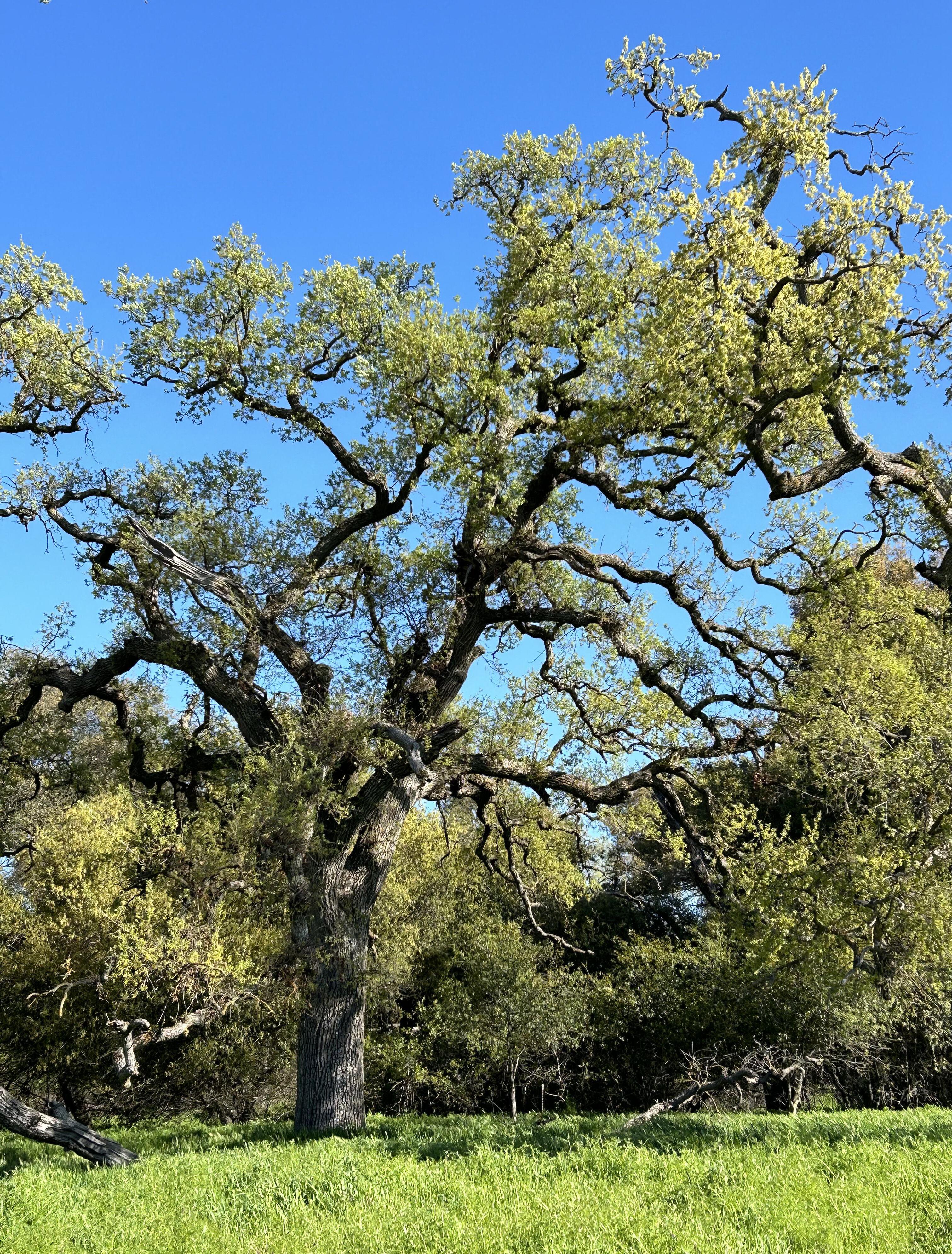

Spring2024 SPRING ISSUE 2024 VOLUME 77 • NUMBER 3 CME A Magazine
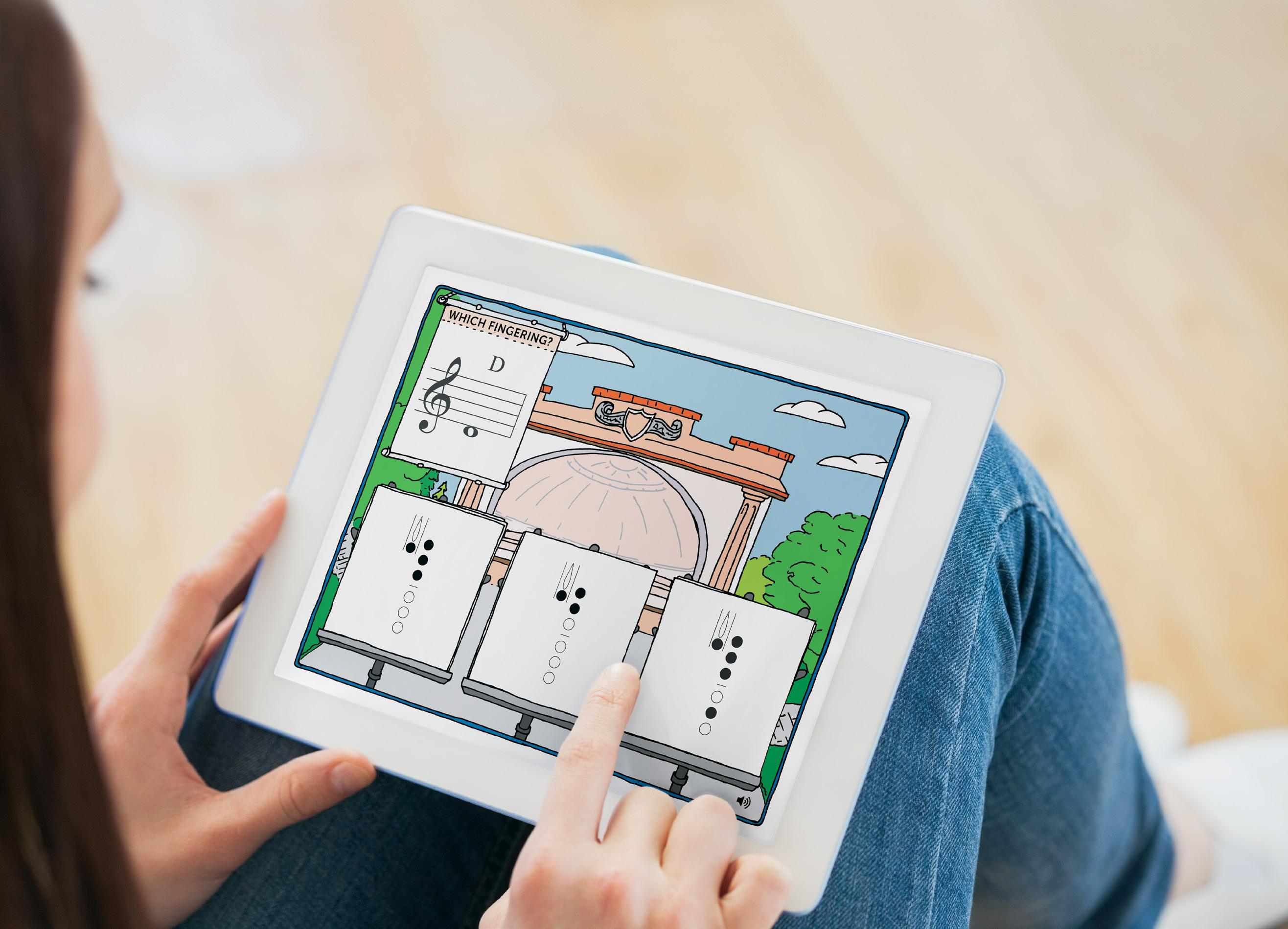
Get kids performance-ready in no time, with Breezin’ Thru Theory and now with Fingerings too! The super-fun Breezin’ Thru Fingerings are timed-response drills for beginning and intermediate players. Kids simply pick their band or orchestra instrument and try to beat the clock matching notes to correct finger positions. As they progress through the levels, students build rapid response and mastery. Level the playing field and accelerate your performance programs by integrating Breezin’ Thru Theory, now with Fingerings too.
It
1-855-265-3805 BreezinThruTheory.com
your
NEW!
Try
Now!
Woohoo! Breezin’ Thru Fingerings will power up
performance.
Fingerings now available for: Coming soon: ● Band ● Orchestra ● Guitar
● Solfège
● Recorder
● Ukulele
● Mallets/ Keyboard


Issue 3 President’s Message by Chad Zullinger, CMEA President 4 Stockton Soul 5 CMEA Award Winners 2023-2024 6 CMEA State Council 7 CMEA Voting 8 Become a Partner with CMEA 10 CMEA’s Mentorship and Support Program: It’s How We Help Ourselves by Ryan Duckworth, CMEA Vice President 13 CMEA Urban Programs Virtual Meet-up by Zack Pitt-Smith, CMEA Urban Schools Representative 13 CMEA Collegiate Council Update by Daniel Crispino, CMEA Collegiate Council Representative 14 Bay Section Update by Sandra Lewis, CMEA Bay Section President 15 Capitol Section Update by Christopher J. Tootle, CMEA Capitol Section President 16 Central Section Update by Elisha Wells, CMEA Central Section President 17 Central Coast Section Update by Samuel Oh, CMEA Central Coast Section President 18 North Coast Section Update by Collin Kirkwood, CMEA North Coast Section President 19 Northern Section Update by Tanner Johns, CMEA Northern Section President 20 Southeastern Section Update by Dr. David Betancourt, CMEA Southeastern Section President 22 Southern Border Section Update by Emma Schopler, CMEA Southern Border Section President 23 Southwestern Section Update by Dr. Tamara Thies, CMEA Southwestern Section President 25 2024 CMEA Research & Educational Projects Poster Session by Dr. Ruth Brittin, CMEA Research and Higher Education Representative 27 CMEA Solo & Ensemble Festivals 2024 28 Music Composition Walking Gallery 2024 32 Teacher Grant Programs by Dr. Diana Hollinger, CMEA Collegiate Representative Ad Index IFC Breezin Thru Theory 34 Education Through Music LA 7 LA Youth Philharmonic 24 San José State University 9 Sonoma State University 32 University of Portland 12 West Music 26 World Projects CMEA Magazine is published quarterly (Fall, Winter, Spring, Summer) by CMEA. Graphic Designer: Adam Wilke Editors: Holly MacDonell and Trish Adams Business Manager: Trish Adams CMEA Administrative Office Mailing Address: 2417 N 11th Ave, Hanford, CA 93230 Office: 559 904–2002 E-mail: cmea@calmusiced.com Website: www.calmusiced.com Rates and advertising information available here: calmusiced.com/communication/magazine/ publication-guidelines The Executive Board of CMEA serves as the Editorial Committee. The observations and opinions expressed in any article in this magazine are those of the author and do not necessarily represent the official position of the Association. CMEA does not necessarily endorse any product or service advertised in this magazine. Orchestrate Success in Your Career... JOIN CMEA+. Visit www.nafme.org. CMEA is a federated state association of the National Association for Music Education.
In This
In This Issue (continued)
33 Unleash Your Creativity with the WeVideo Soundtrack Project!
by Holly MacDonell, CMEA Music Education through Technology Representative
35 CODA News - March 2024
by Tiffany Ou-Ponticelli, CODA President
CMEA Past Presidents
2020-2024
2020-2022
Anne Fennell, San Diego
Armalyn De la O, San Bernadino
2018-2020 John Burn, Cupertino
2016-2018
Scott Hedgecock, Fullerton 2014-2016
Michael D. Stone, Bakersfield
2012-2014
Russ Sperling, San Diego 2010-2012
2008-2010
2006-2008
2004-2006
2002-2004
2000-2002
1998-2000
Norman Dea, Walnut Creek
Jeff Jenkins, Chula Vista
Cheryl Yee Glass, Danville
Rob Klevan, Pacific Grove
Sam Gronseth, Paradise
George DeGraffenreid, Fresno
Dennis L. Johnson, Salinas 1996-1998
Jay D. Zorn, La Crescenta 1994-1996
1992-1994
1990-1992
1988-1990
1986-1988
1984-1986
1982-1984
1980-1982
1978-1980
1976-1978
1974-1976
1972-1974
1970-1972
Don Doyle, Pasadena
Bill Adam, Roseville
Carolynn Lindeman, Greenbrae
L. Leroy Roach, Walnut Creek
John L. Larrieu, Portola
Vivian M. Hofstetter, Bakersfield
David S. Goedecke, Stockton
Charles L. Freebern, San Diego
Henry Avila, Monterey
Mary C. Reed, Elk Grove
Marlow Earle, Lakewood
Louis Nash, La Crescenta
Anthony L. Campagna,
1951-1953
1949-1951
1947-1949
Fred Ohlendorf, Long Beach
George F. Barr
Elwyn Schwartz
Clarence Heagy, Fresno
36
36

CMEA Hall of Fame Award Recipients Honoring Lifetime Achievement in Music Education
2024 - Cathy Olinger
2024 - Michael Phenicie
2023 - Norm Dea
2023 - John Abigana
2022 - Marlene Mudge
2020 - Stephen Luchs
2019 - Judi Scharnberg, Jeri Webb
2018 - Dr. Lawrence Stoffel, Dean Hickman
2017 - Dr. Edward Harris, Michael Corrigan, James Mazzaferro
2016 - Dr. Robert Halseth, Rosemarie Krovoza, Rick Meyer
2015 - Dale Anderson, Ann Marie Haney, Dr. Thomas Lee
2014 - Jon Christian
2013 - Orrin Cross
2012 - Gayane Korkmazian, 2012; Gerald E. Anderson, 2012;
2011 - David Whitwell
2010 - Nicholas Angiulo, Vincent Gomez
2009 - Kem F. Martinez, Carl W. Schafer, Robert W. Lutt
2008 - Duane Weston
2007 - John Larrieu, Mary Val Marsh, Barbara Cory, Bill Ingram
2006 - Carolynn Lindeman, Joe Foster, Paul Shaghoian
2005 - Frances Benedict, L. Leroy Roach, Silvester McElroy, Jerry Kirkpatrick
2004 - Robert Greenwood, Arthur Huff, Lyle Stubson, Lois Vidt
2003 - John Farr, Thomas Eagan
2002 - Larry Johnson, Mary Louise Reilly
2001 - William Hill, Helynn Manning, Wesley “Colonel” Moore
2000 - Vivian Hoffstetter, F. John Pylman
1999 - Lawrence Sutherland
1998 - Chuck Schroeder
1997 - Dean Semple
1996 - Burl Walter Jr.
1994 - Jerry Moore
1992 - Mike Pappone
1991 - David Goedecke
1987 - Marlowe Earle
1985 - Arthur Dougherty
1983 - William Burke
1981 - Aubrey Penman
1979 - Steve Connolly
1977 - Howard Swan
1975 - Russell Howland
Foster City 1968-1970 Judd Chew, Sacramento 1966-1968 Kenneth D. Owens 1964-1966 Keith D. Snyder, Davis 1962-1964 Gibson Walters, San Jose 1960-1962 Douglas Kidd 1957-1960 Joseph W. Landon, Fullerton 1955-1957 Harold Youngberg, Oakland
1953-1955
CBDA Update by David Green, CBDA Director of Communications
CAJ Update by Barb Catlin, CAJ President
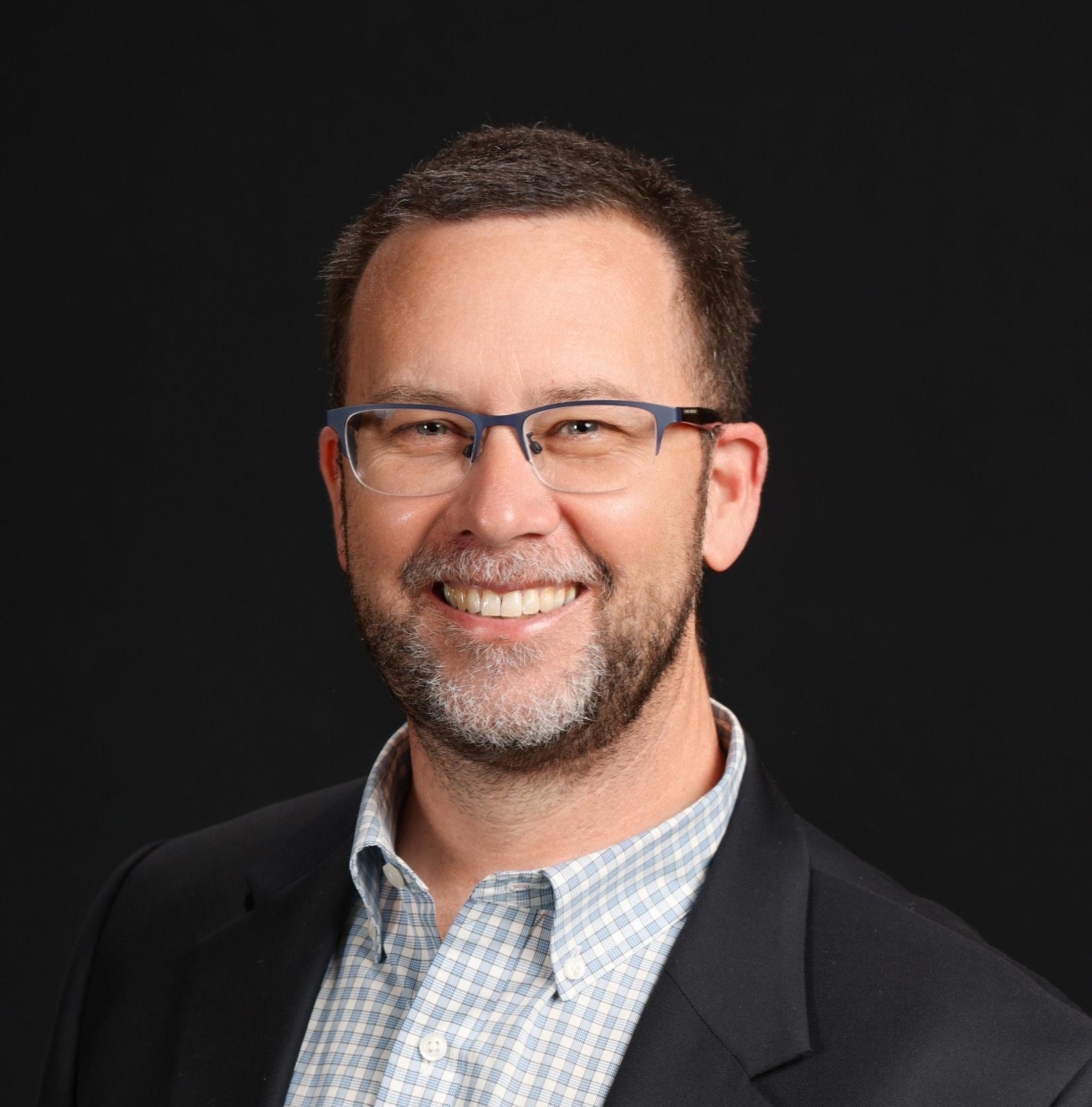
Well, the moment has arrived! I am thrilled to step into the role as our President of the California Music Educators Association. I can remember vividly, in 2001, being asked to host a Bay Section choral festival in my second year teaching music at Capuchino High School in San Bruno. It was through that experience that I began to meet music educators from around the Bay Area, people that would become mentors to me in those first few years of my teaching career, and friendships that would grow to be some of my dearest colleagues to this day.
As I transition into this role as President, I am reminded of the importance of service. One of the main reasons I have served in various roles and capacities in CMEA throughout these years is simply to give back to those in the profession that have graciously given so much to me to become the educator I am today. I am fairly certain that I would not be able to serve the organization in this capacity had it not been for colleagues who took their time to mentor and support me throughout those formative years as a music teacher and member of CMEA. Drawing from a variety of teaching experiences as a music educator, I am honored to serve the organization that has made such a profound impact on my journey.
As President, one of my greatest joys will be engaging with all of you, our valued members. Whether it’s meeting and chatting at CASMEC, attending your regional In-service conferences and board meetings, or visiting the numerous NAfME Collegiate chapters around the state, I look forward to these opportunities to connect. By the time we are reading this, CMEA is set to begin our State Festival season, hosting at full capacity Instrumental, Choral, and Solo-Ensemble festivals to pre-pandemic participation levels! This is yet another chance to experience the teaching that manifests itself in the lives and music shared by your students with their local communities and CMEA.
As one of the four Arts Education organizations in the state, CMEA continues to advocate that all students in California have equal access to a high-quality music education as part of a wellrounded education. Recently, there has been proposed legislation that is actively trying to undermine this position. The passage
President's Message
by Chad Zullinger, CMEA President
and attempts to implement Proposition/AMS 28, as well as an unprecedented teacher shortage across all disciplines, including the Arts, requires our steadfast pursuit to promote equal access to a sequential, standards-based music education for all Pre-K through Grade 12 students taught by fully qualified music educators. For this reason, I am looking forward to continued partnership with our arts Education organization colleagues in the state because we cannot possibly accomplish individually what we can accomplish together.
In closing, the people I currently work with, be it students, colleagues, teachers, and those that I have yet to meet, all bring unique perspectives, understandings, and gifts to the field of Music Education. With the utmost respect and admiration, I’d like to warmly thank Past presidents Anne Fennell and Armalyn De La O for their unwavering commitment to navigate, lead, and teach us throughout their presidency. Over the past four years, it has been truly inspiring to observe and learn from their outstanding leadership.
I am excited to continue this work and collaborate with CMEA leaders in spaces where we can share, work, and think through possibilities as we envision together how we can best serve the organization looking forward. I am humbled to be considered for this position and serve you as President of CMEA.

Spring Issue 2024 3
Chad Zullinger (CMEA President), Scott Sheehan (NAfME National President), Anne Fennell (CMEA Past President), and Scott Hedgecock (NAfME Western Division President)
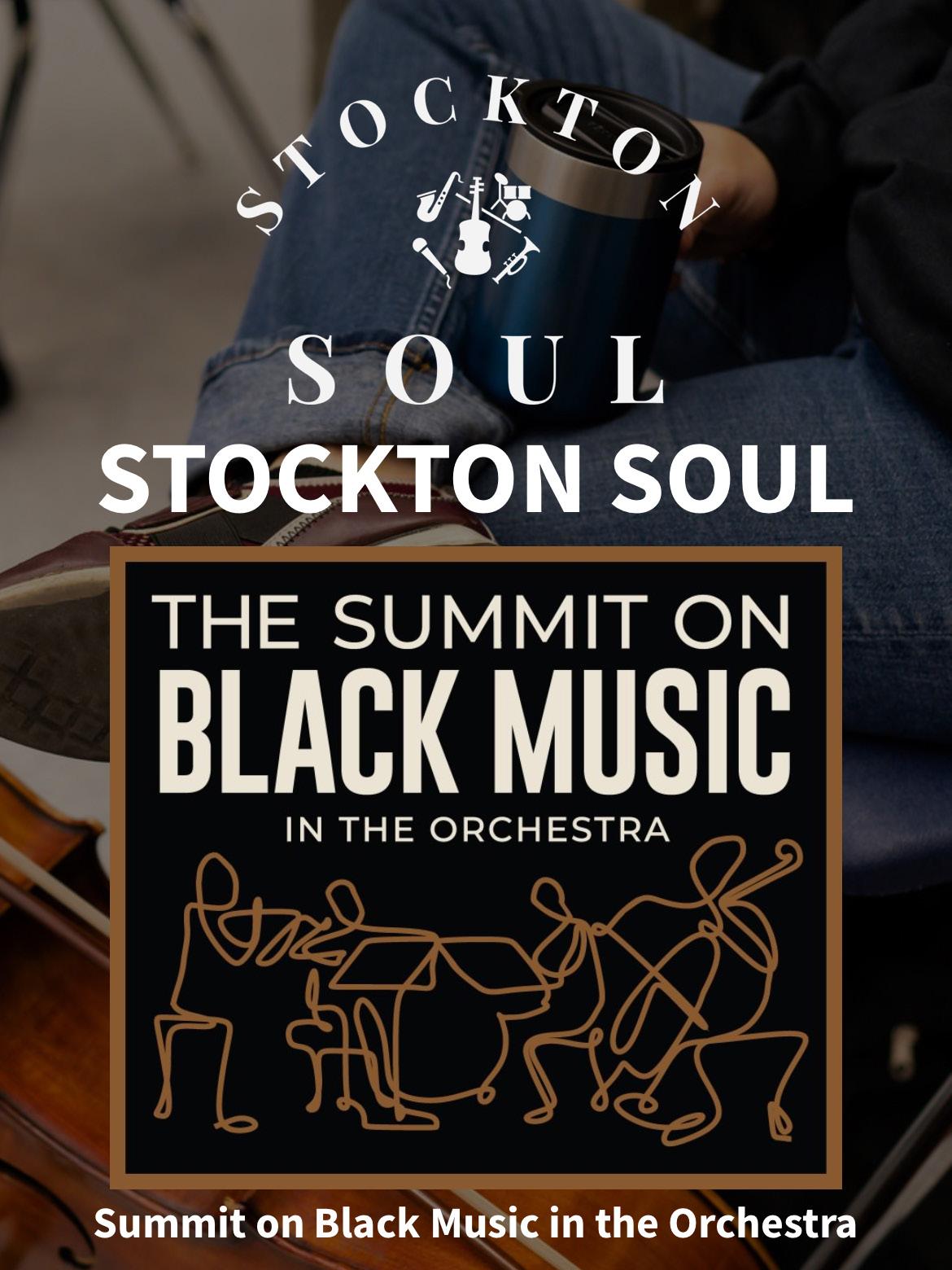

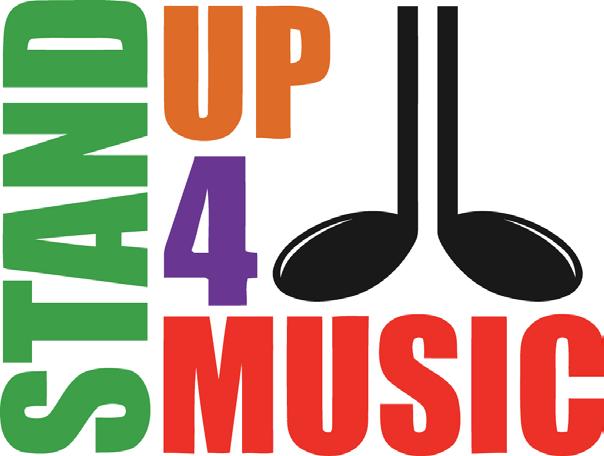

Arts Advocacy Day
April 30, 2024
9:00 AM - 1:00 PM
State Capital Park
Stockton Soul is a Soul Orchestra that is deeply committed to educating, empowering, and inspiring audiences through the performance of Black American Music. Their mission and vision guide their purpose and artistic endeavors:
Mission Statement:
“We are a Soul Orchestra dedicated to educating, empowering, and inspiring our audiences through the performance of Black American Music.”
Vision Statement:
ELEVATE: Stockton Soul aims to communicate musically, visually, and verbally the awe-inspiring and extraordinary nature of Black American Music. They recognize the diverse and extensive genres within this rich musical heritage as true works of art.
ENTERTAIN: The orchestra provides professional and eclectic performances of Black American Music to both local communities and web audiences, incorporating strings into their arrangements.
EDUCATE: Stockton Soul tells the story of Black American Music through their performances and offers educational resources to the public, including web links, curriculum, and presentations.
INSPIRE: By demonstrating alternative paths for studying and performing music, especially to young string students, Stockton Soul encourages creativity beyond traditional school and institutional settings.
You can find more about Stockton Soul on their website Stocktonsoul.com and follow them on Instagram OfficialStocktonSoul for updates and performances!
CASMEC 2024
DAILY RAFFLE PRIZE WINNERS!
Thank you to our sponsors.
S.E. Shires Co. Alessi Scale UP Practice Tool
John Iosefa, Megan Kraft, Stephen Zhang
S.E. Shires Co. Virtual Clinic with Sean Reusch Elisha Wells
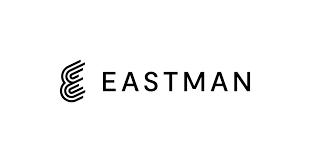
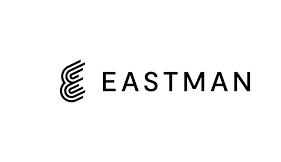
S.E. Shires Co. Virtual Clinic with Nestor Torres
Marisa Finlayson
Careers in Music Poster (NFHS): Joshua Boyd, Carissa Corrigan
Hal Leonard gift card: Jasmine Melendez
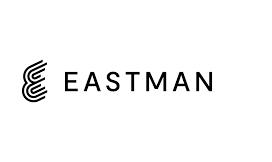


Hal Leonard Noteflight Learn subscription: Abigail Barrett, Serena Renteria

Hal Leonard Essential Elements subscription: Rafael A., Brittany Case
Sweetwater gift cards: Esther Minwary, Shane Hughes

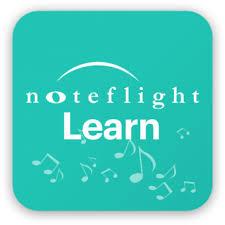

CMEA Magazine
Congratulations To All Our Recipients!!




5
CMEA Award Winners 2023 - 2024
Photo Credit: Nico Salum Photography
CMEA State Council
CMEA EXECUTIVE BOARD
CMEA President
Chad Zullinger czullinger@calmusiced.com
CMEA President-Elect
Holly MacDonell hmacdonell@calmusiced.com
CMEA Vice President
Ryan Duckworth mentorship@calmusiced.com
CMEA Secretary
Emelynn Montoya emontoya@calmusiced.com
CMEA Immediate Past President
Anne Fennell afennell@calmusiced.com
CMEA OFFICE
cmea@calmusiced.com
2417 North 11th Avenue Hanford, CA 93230 559 587-2632
CMEA Executive Administrator
Trish Adams cmea@calmusiced.com 559 904-2002
CMEA Administrative Assistant
Heather Adams hadams@calmusiced.com 559 410-2425
CMEA Legislative Advocate
Martha Zaragoza Diaz lobbyist1.mzd@gmail.com
SECTION PRESIDENTS
CMEA Bay Section President
Sandy Lewis slewis@pausd.org
CMEA Capitol Section President
Christopher J. Tootle ctootle80@gmail.com
CMEA Central Section President
Elisha Wells elisha.wells@fresnocitycollege.edu
CMEA Central Coast Section President
Sam Oh samuel.oh@salinasuhsd.org
CMEA North Coast Section President
Collin Kirkwood collinkirkwood1@gmail.com
CMEA Northern Section President
Tanner Johns tjohns@chicousd.net
CMEA Southeastern Section President Dr. David Betancourt dbetancourt@cerritos.edu
CMEA Southern Border Section President Emma Schopler emmaschopler@gmail.com
CMEA Southwestern Section President Dr. Tamara Thies Tamara.Thies@csulb.edu
NAfME OFFICERS
NAfME President
Scott Sheehan 1806 Robert Fulton Drive Reston, VA 22091 800 336-3768
NAfME Western Division President
Scott Hedgecock shedgecock@calmusiced.com
COUNCIL OF REPRESENTATIVES
CMEA CAJ Representative
Barb Catlin barbcatlin@gmail.com
CMEA CASMEC Coordinator
Francisco Marquez fmarquez123@me.com
CMEA CBDA Representative
Dan Bryan dbryan1109@gmail.com
CMEA CCDA Representative Dr. Arlie Langager arlie.langager@gmail.com
CMEA CCDA Choral Leadership Academy Coordinator
John Sorber johnso@cos.edu
CMEA CODA Representative
Tiffany Ou-Ponticelli touponticelli@pausd.org
CMEA Advocacy Day Performance Coordinator
John Brasier jbrashie@egusd.net
CMEA Advocacy Representative
Russ Sperling sperlingruss@gmail.com
CMEA Collegiate Representative Dr. Diana Hollinger dhollinger2006@yahoo.com
CMEA Collegiate Council Representative
Daniel Crispino dcrispino@mail.csuchico.edu
CMEA Creating and Composition Representative
TBA
CMEA CTA Liason
Troy Trimble troyatrimble@gmail.com
CMEA DEIA Representatives
Jonathan Raman Jraman85@gmail.com
CMEA Diverse Learners Representative Regan Lambert rlambert@emcsd.org
CMEA Elementary Music TK-5/6 Representative
Sal Rios rioss@gfusd.net
CMEA Global Music Education Representative
Dr. Will Coppola wcoppola@usc.edu
CMEA Higher Ed Music Education Supervisor Representative
Dr. Kara Ireland D’Ambrosia Kara.IrelandDAmbrosio@sjsu.edu
CMEA Higher Education and Research Representative
Dr. Ruth Brittin rbrittin@pacific.edu
CMEA Innovations Representative
Dr. Megan Foley mfoley@polytechnic.org
CMEA Mentorship Program Chairperson
Ryan Duckworth mentorship@calmusiced.com
CMEA Music Supervisors Representative
Brad Van Patten BradVanPatten@iusd.org
CMEA Music Education through Technology Representative
Holly MacDonell hmacdonell@calmusiced.com
CMEA New Teacher Representative (5 or less years)
Nico Salum nicolosalum@gmail.com
CMEA Retired Members Representative
Rita Zigas-Brown rzigas.brown@gmail.com
CMEA Rural Schools Representative
Jeremiah Jacks jeromejacks30@gmail.com
CMEA Secondary Music 6-12 Representative
Amy Lui amy.lui@polyhigh.org
CMEA Social Media Representative
Holly MacDonell hollymacdonell@gmail.com
CMEA State Band and Orchestra Festival Coordinator
John Burn jburn@calmusiced.com
CMEA State Choral Festival Coordinator
Margaret Starr choralfestival@calmusiced.com
CMEA State Solo and Ensemble Festival Coordinator
Cheryl Yee Glass cglass@srvhs.org
CMEA Tri-M Representative
Cassandra Moulton-Rizzo cmoulton@nohum.k12.ca.us
CMEA Urban Schools Representative
Zack Pitt-Smith zackpittsmith@gmail.com
6 CMEA Magazine
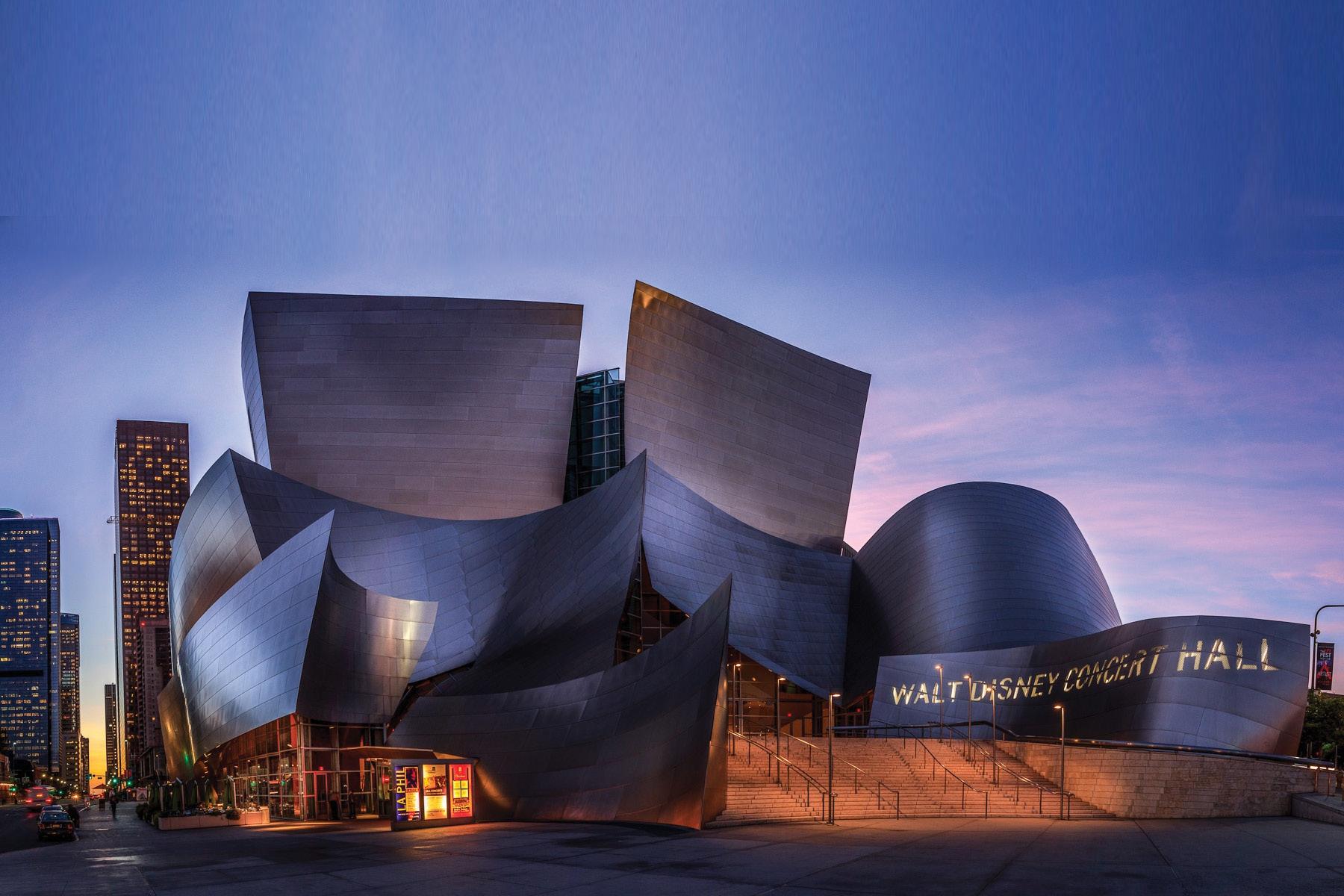
Spring Issue 2024 7
Become a Partner Wtih CMEA
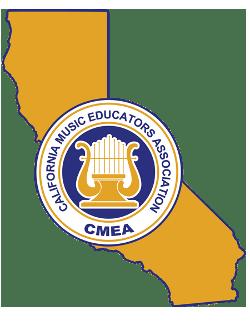

Gold Level Sponsors Gold Partner - Annual Cost: $650
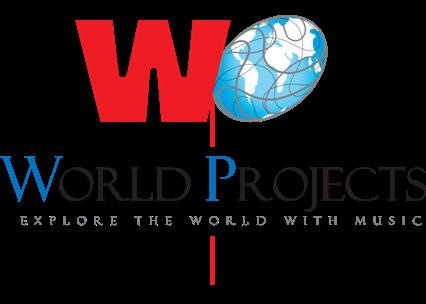
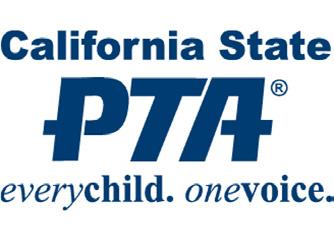
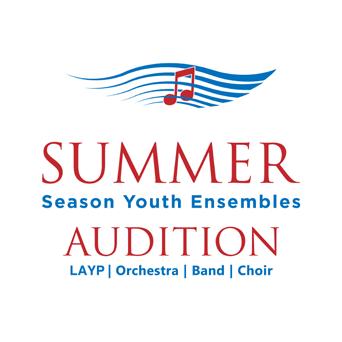
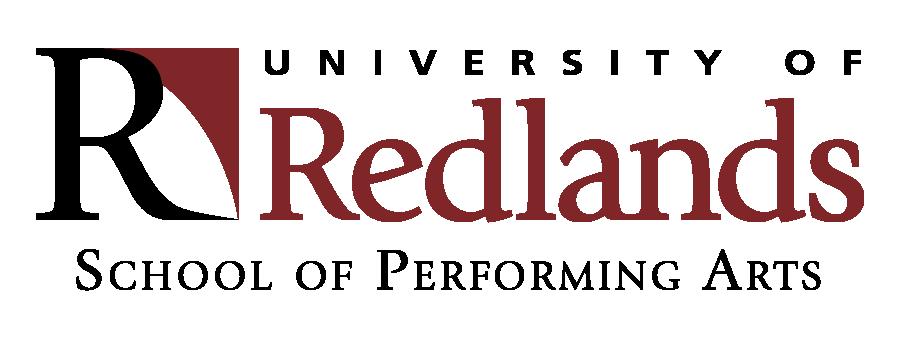

• Website listing with logo and web link on corporate sponsorship page of website
• Exclusive Gold Partner access to CMEA direct sponsored email pricing+
• Company name designation with URL link in each CMEA Magazine
• 25% discount on all CMEA Magazine Advertising
• Company name and link as gold sponsor on CMEA state festival programs
+see sponsored email marketing options below
Silver Partner - Annual Cost: $400
• Company name designation with URL link in each CMEA Magazine
• 15% discount on all CMEA Magazine Advertising
• Website listing with web link on corporate sponsorship page of website
• Company name and link as silver sponsor on CMEA state festival programs
Bronze Partner - Annual Cost: $250
• Company name designation with URL link in each CMEA Magazine
• Website listing with web link on corporate sponsorship page of website
• Company name and link as bronze sponsor on CMEA state festival programs
+Direct Sponsored Email (Gold Partner Exclusive)
Reach your customers directly! As a Gold Corporate Partner, you can now have exclusive access to our members through CMEA sponsored emails. Each month, CMEA will send up to two (2) sponsored emails on behalf of our Gold Corporate Partners. Corporate Partners may submit content and formatting to CMEA, who will distribute your email to the members of your choice. Contact a staff member today for more information. Availability is limited. All email content is subject to approval by CMEA. Rates excluded from discounts.
Sponsored Emails
We will send a promotional email to our membership on your behalf. Sponsored emails are only available for our Gold-level Corporate partners. Pricing below is for Gold-level Corporate members; all others will need to factor in the price of a Gold partnership also.
Pricing per Email (March - October)
• One (1) email to all Full Active Members: $350
• One (1) email to any segment (i.e. band, choral, orchestra, elementary): $250
Pricing per Email (November - February)
• One (1) email to all Full Active Members: $500
• One (1) email to any segment (i.e. band, choral, orchestra, elementary): $350
8 CMEA Magazine

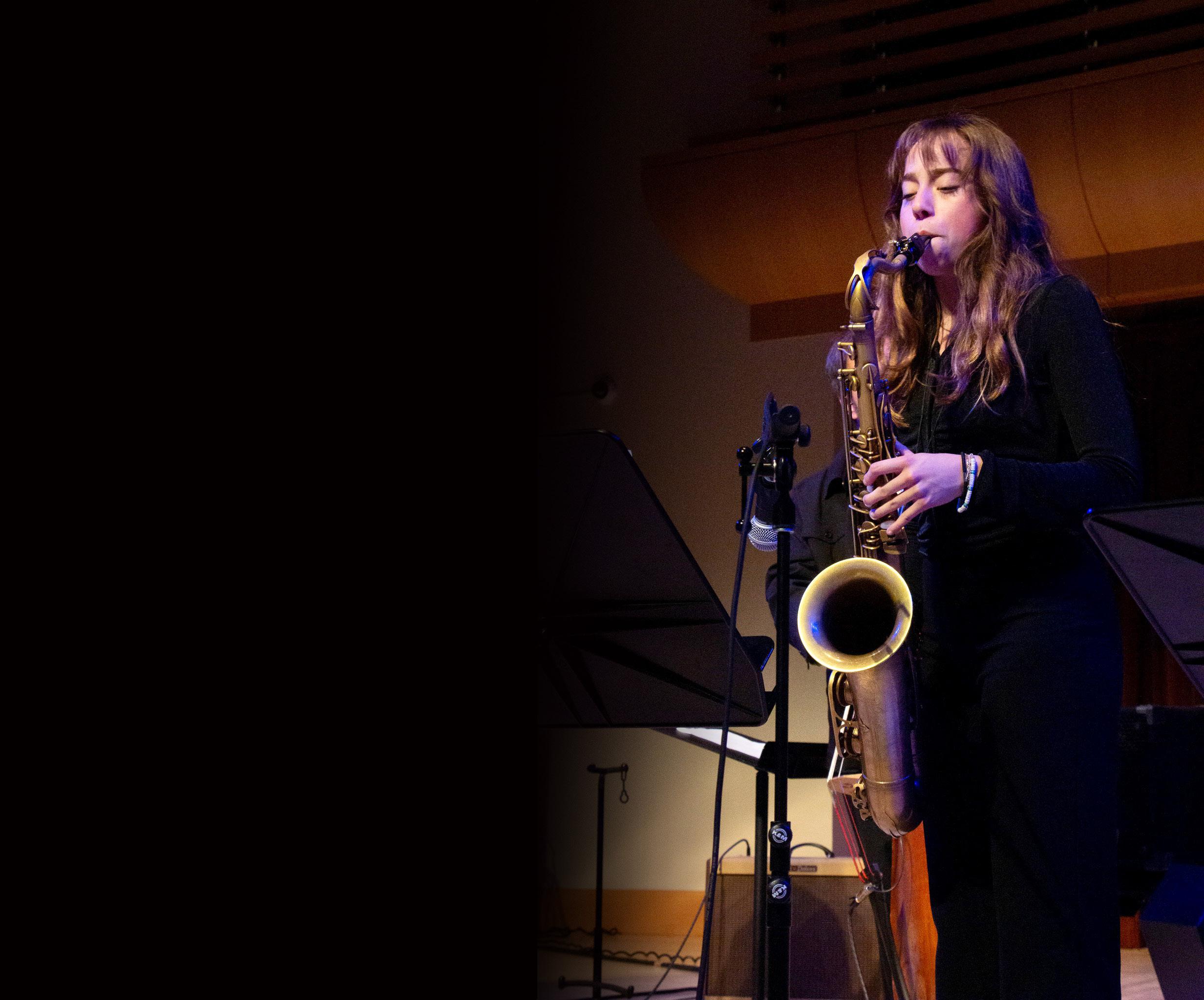
Bachelor
Music in Music Education
Bachelor of Music in Performance
Bachelor of Music in Jazz Studies
Bachelor of Music in Composition
Bachelor of Arts in Music
Minor in Music Liberal Arts
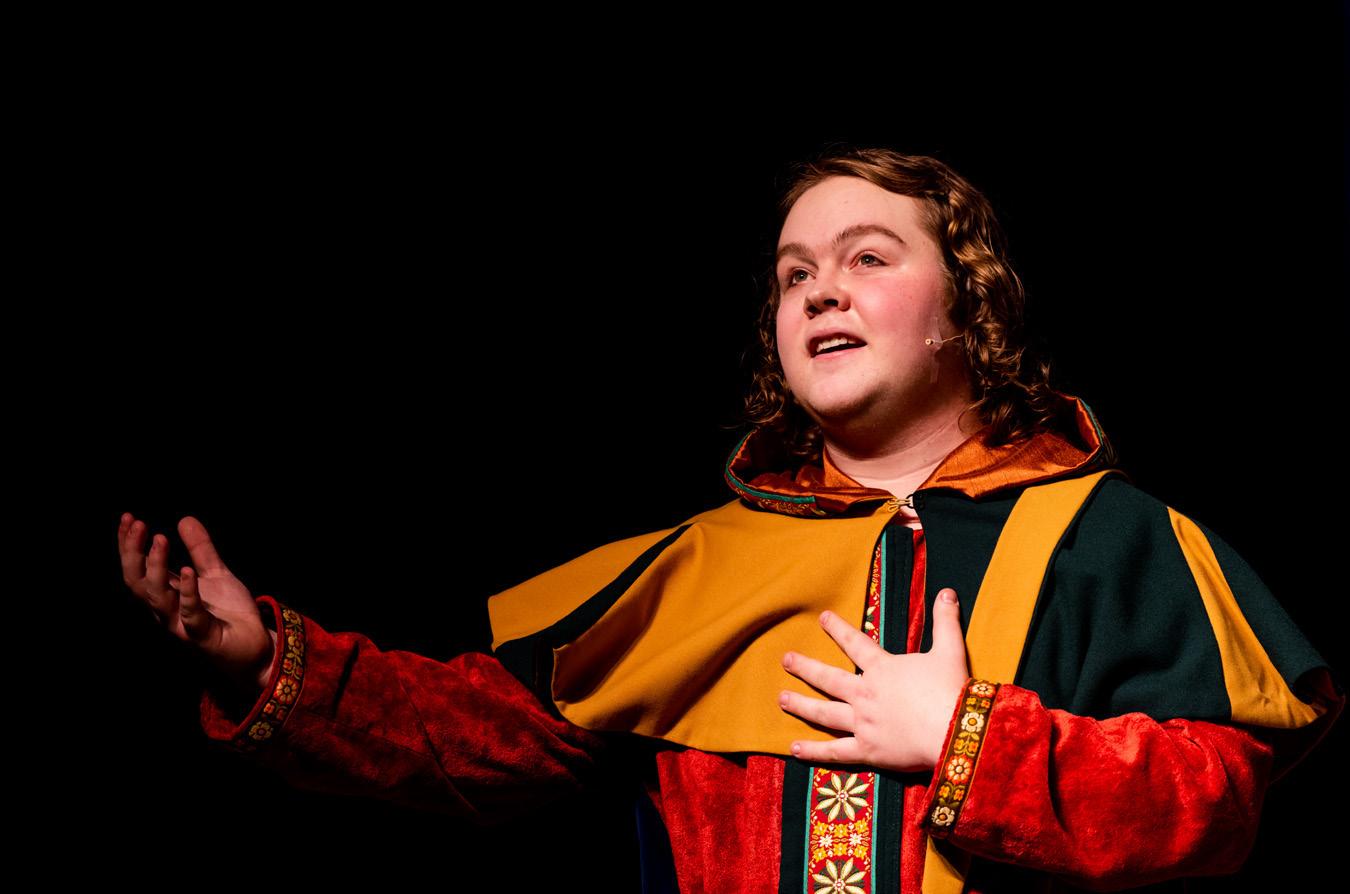
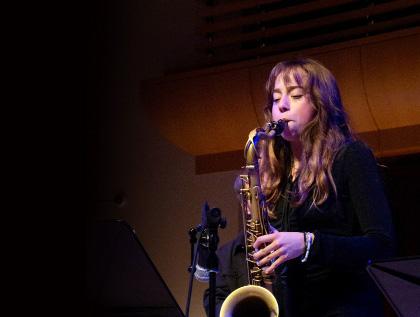
Minor in Music Jazz Studies

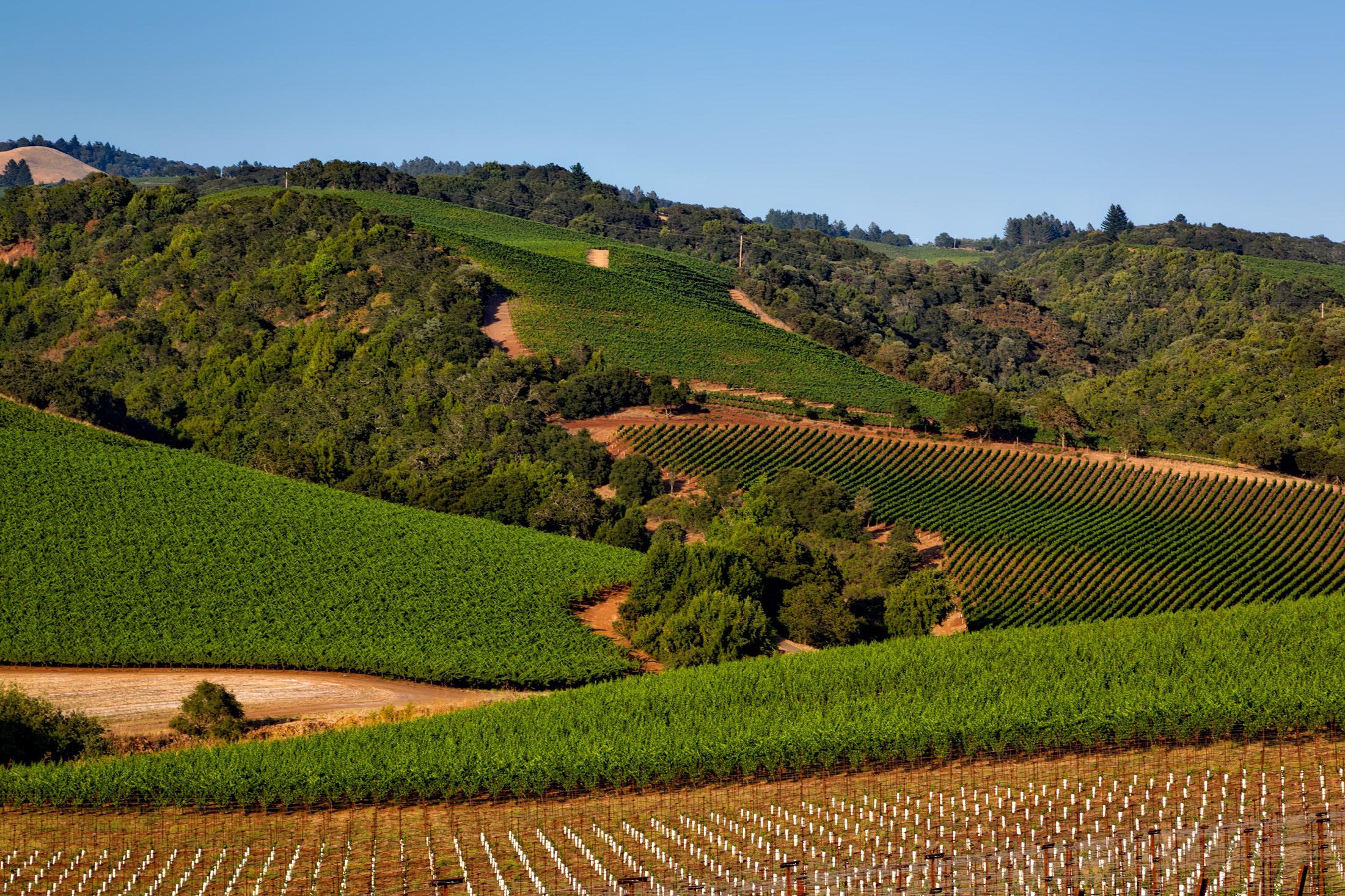
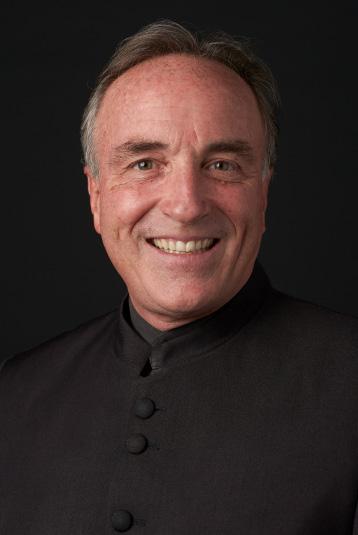
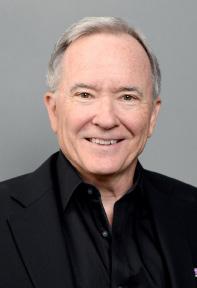
Andy Collinsworth Director of Bands Sonoma State University D E GR E E PROG R AMS :
SONOMA SUMMER CONDUCTING SYMPOSIUM
(Pre-Certification)
of
m u sic. s o n oma . ed u YOUR
SCHOOL
24 – J une 28, 2 0 2 4 GR E EN M U SI C C E NT E R , SONO M A S TAT E UNIVERSIT Y
o nd u c ti n g Participant $60 0 Ob s e rver $37 5
U ni t o f College C redit $7 5
Develop your skills as a conductor and teacher
Focus on movement and musical interpretation
Experience Wine Country Gary W. Hill Director of Bands Emeritus Arizona State University
SOUND YOUR
June
C
1
•
•
•
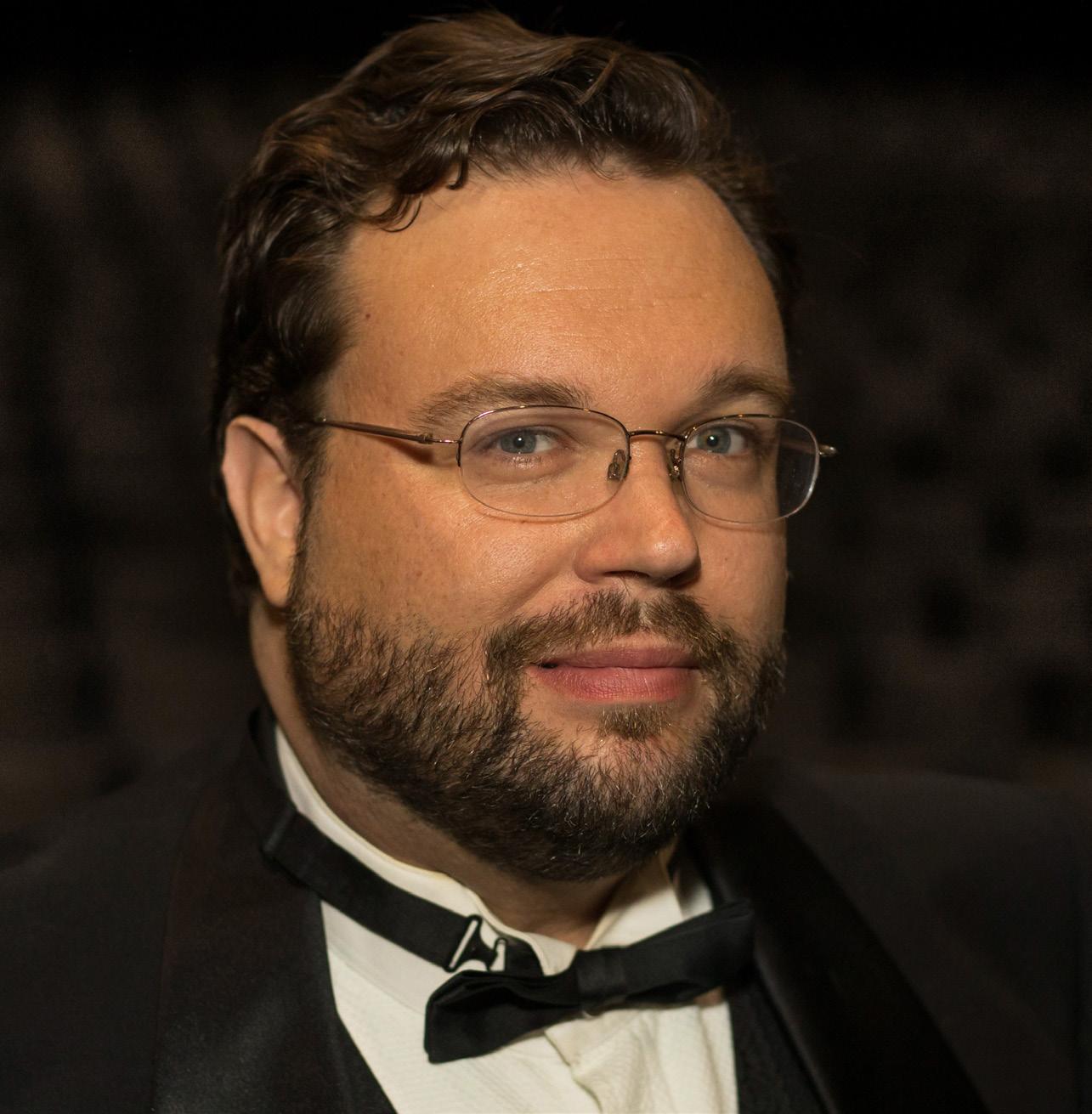
CMEA’s Mentorship and Support Program: It’s How We Help Ourselves by Ryan Duckworth, CMEA Vice President
I’m one of those people whose brain often works in random song lyrics and movie quotes. As I reflect on the journey and future of CMEA’s Mentorship and Support Program, I find myself repeatedly coming back to a classic rock track by The Beatles entitled “Help!” The lyrics by John Lennon and Paul McCartney from 1965 artfully frame the reality of what we are trying to do. So letting the “Fab Four” start us off… (lyrics from https://www. thebeatles.com/help-1)
“Help! I need somebody, Help! Not just anybody, Help! You know I need someone, Help!”
Everybody needs help sometime. Everyone. Our profession will be better if we can move beyond the fallacy that asking for help equates to weakness or inadequacy. Our Mentorship and Support Program is built on the premise any member who asks for help should be able to get help from another willing member who can support them in their area of need. We match people who ask for help into two collaborative partnerships - one based on content needs (age level and specific classes taught) and one based on local/ regional needs.
But as the lyrics say, “not just anybody.” CMEA is blessed to
have a wealth of volunteer mentors who are willing to enter into these collaborative partnerships to support the members who are in our program. Our mentors have the experience, connections, and desire to provide this service on behalf of our organization. Even though not every volunteer gets paired with someone in every single year, I would like to take this opportunity to thank all the volunteers for the 2023-2024 Mentorship & Support Program: Nora Hunter, Asa Stern, Jennifer Gee, Thomas Slabaugh, Edward Trimis, David Betancourt, Lisa Crawford, Sofia Fojas, Matt Sadowski, Bob Athayde, Judith Scharnberg, Amy Villanova, Amy Lui, Cynthia Jorstad, and Stacy Harris.
I’d also like to thank each of the section’s “Mentorship Representatives” who provide the local connection and support for each section’s members who are involved in the program. These volunteers also help make sure that their section members know about and can get connected to our Mentorship and Support Program: Keith Johnson, Brad North, Michael Tackett, Cathy Findley, Fred Tempas, Sam Gronseth, Michael Fleischman, and Ryan Gonzalez
“When I was younger, so much younger than today, I never needed anybody’s help in any way,
But now these days are gone and I’m not so self assured, Now I find I’ve changed my mind, I’ve opened up the doors.”
10 CMEA Magazine
Traditional mentorship programs focus on teachers in the first five years of teaching, and for good reason. The data indicates that the percentage of teachers who leave the profession in the first five years is dramatically reduced by having points of professional contact that can help young teachers navigate the difficult and confusing waters of an early career experience. But we’ve discovered that in California, with our state’s robust induction program and its expectation of weekly meetings with a mentor teacher, many of our new music teachers simply do not have the time or energy to take on an additional collaborative relationship.
Our program is not and cannot be a replacement for the state’s induction program, but we can be an additional resource for people in the induction program, especially for those who may not be matched with someone familiar with the specific and idiosyncratic nature of music classes. Our collaborative partners can act as “translators” helping you put your music education thoughts into words. Or we can fill the gap of helping to ease the transition after the induction program by providing a supportive teacher in the years following your completion of the induction program.
To be clear, our Mentorship and Support program only asks for a minimum of one meeting per month - most meetings are about an hour long. The meetings can be virtual and often are. You schedule the meetings well in advance and around your schedule. Our program is not meant to be “one more thing.” Instead it’s meant to give you “one more option” when it comes to getting support and advice around your career and educational practices.
But for many of us, the first years are so busy that we don’t even know what we don’t yet know. We don’t know what questions to be asking, and by the time we get to a point where we have that equilibrium of self-reflective practice, we’re so entrenched in our careers that we begin to fear that asking for help will make us look inadequate or hurt our carefully cultivated reputation. But this is a dangerous and counterproductive illusion: we are educators but we must also be lifelong learners. Learners grow by asking questions and asking for help.
“And now my life has changed in oh so many ways, My independence seems to vanish in the haze, But ev’ry now and then I feel so insecure, I know that I just need you like I’ve never done before.”
No matter where you are in your career, if you find that you need a little extra help, and that you’re willing to accept support, then our program is poised and prepared to meet you where you are. Maybe you just changed jobs and need help connecting to local resources. Maybe you just added a new course and need some help in that specific area. Maybe you just became an arts/music/ VAPA administrator or TOSA and need help navigating that new reality. Maybe you just need some new ideas to help counteract the feeling of burnout you think you might be feeling. There are myriad reasons why you might want help. No matter the reasons, we want to “help [you] if we can.”
“Help me if you can, I’m feeling down, And I do appreciate you being ‘round, Help me get my feet back on the ground, Won’t you please, please help me?”
So now we turn our eyes to next year. There will be plenty of music teachers who will want help getting their “feet back on the ground” as we see the first impacts of the Prop. 28/AMS Funds rolling out in districts across the state: new jobs, new positions, even brand new programs. Teachers are going to need help. And we want to be part of that support system.
If you are interested in getting support as a collaborative partner in our Mentorship and Support Program you can apply at bit.ly/CMEAsupport. This link is open year-round. Whenever you discover that you are ready to get support, you can apply. But don’t wait until you are overwhelmed to make these collaborative partnerships - have the relationships in place before life gets too crazy. If you apply now, you’ll be set to go at the beginning of next year with a collaborative partner to help you as you launch into a new season.
If you are in a place in your career where you feel you can help support another music teacher by entering into a collaborative partnership, you can apply to be a mentor in 2024-2025 by filling out the form at bit.ly/CMEAmentor. Volunteers/Mentors must apply before June 31, 2024, to be trained in July for a kick-off at the start of August.
Participation is a one-year commitment, so all participants must reapply each year. This keeps our contact information current and helps ensure the best pairings of collaborative partners that we can provide. So help us help you, and help us help each other. We’ll see you in CMEA’s Mentorship and Support Program next year!
“Help! I need somebody, Help! Not just anybody, Help! You know I need someone, Help!”
Spring Issue 2024 11
SAVE the DATE!
with West Music and a FREE workshop by master clinicians
Sandy Lantz and Gretchen Wahlberg!
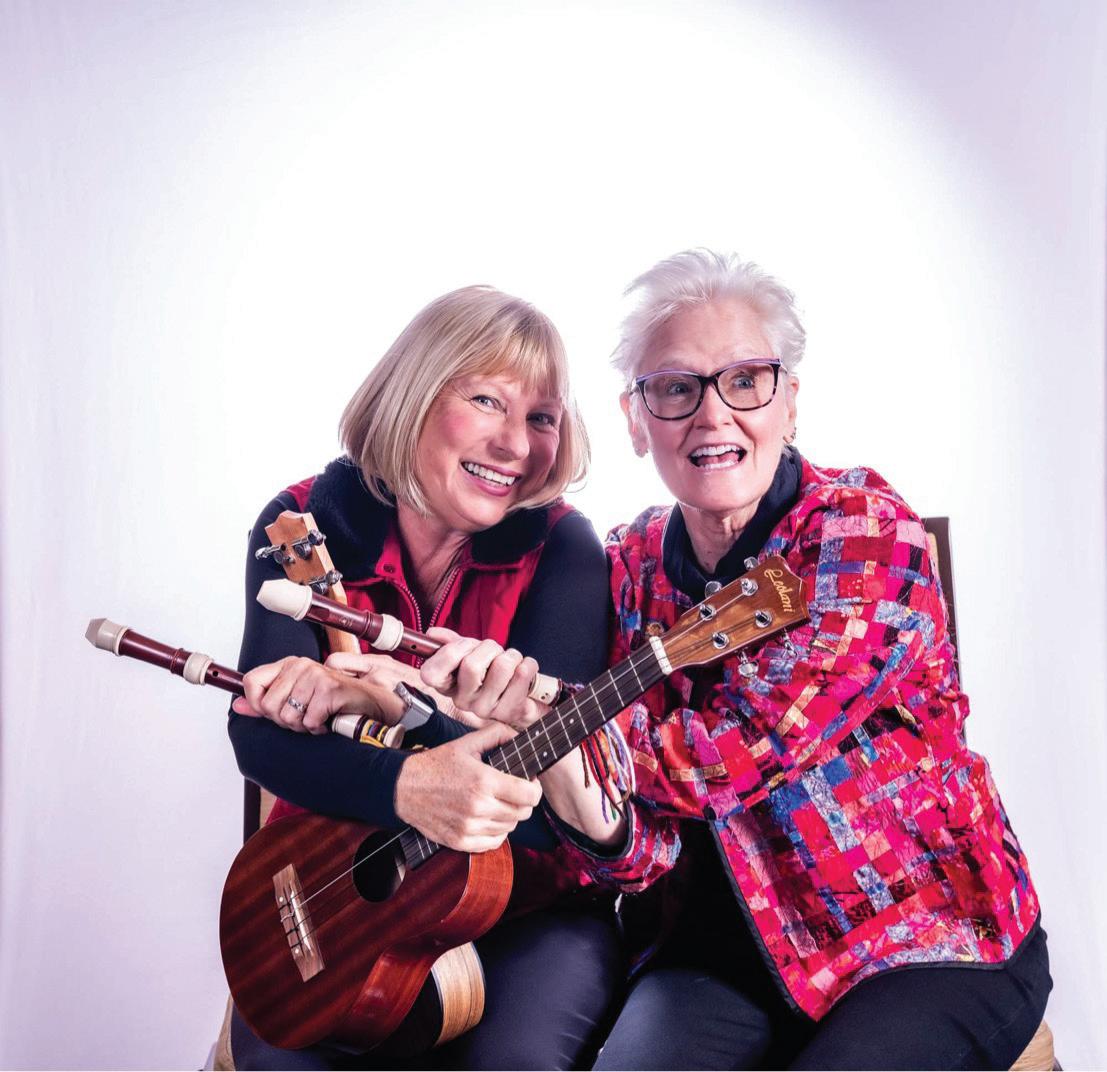
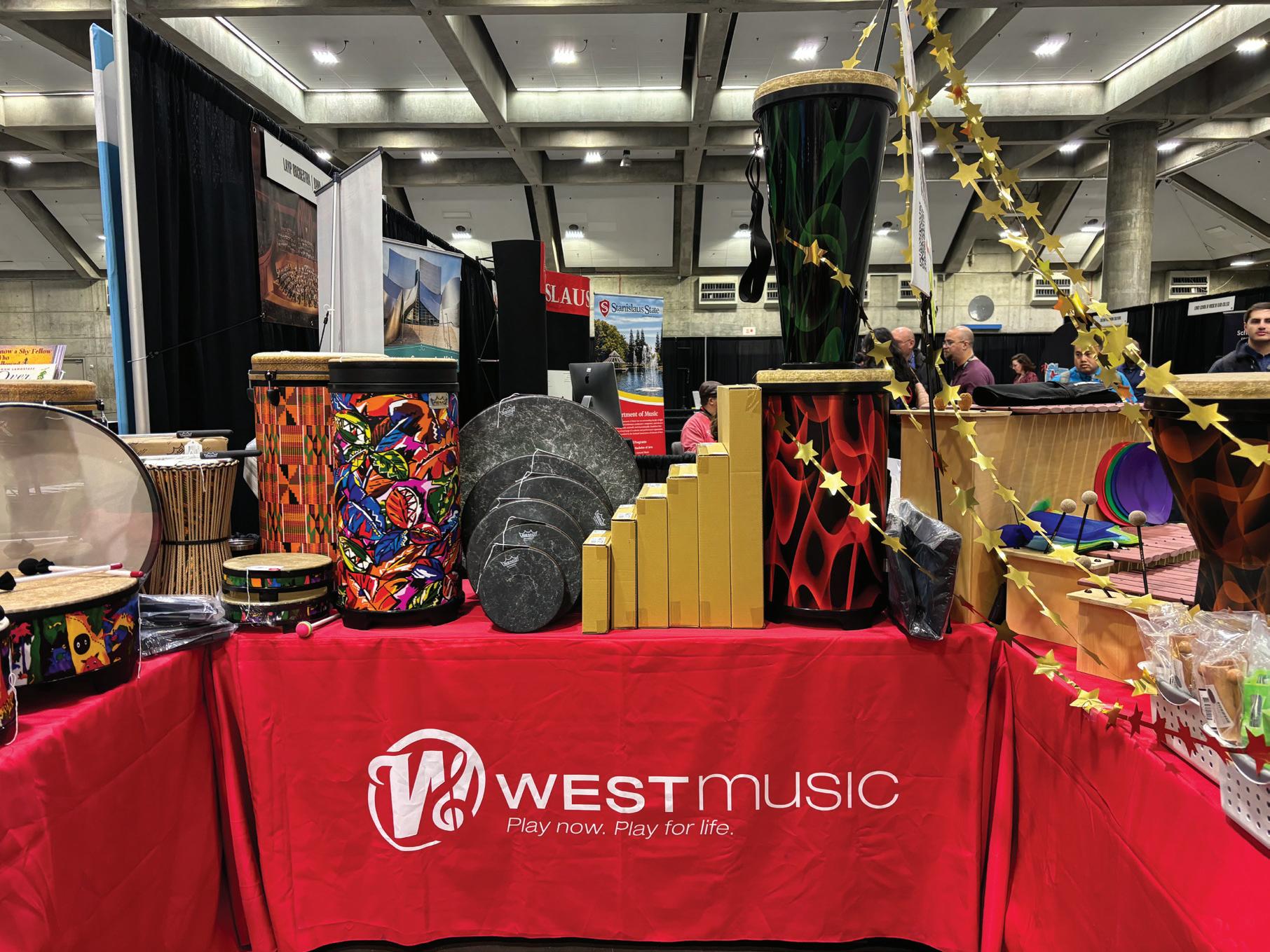
We’re kicking off the 2024-25 school year with the West Music traveling road show! We will present a FREE full-day, hands-on workshop featuring Orff instruments, world drums, ukulele, unpitched percussion, recorders and more with active music-making ideas from Sandy and Gretchen.
Whether you've been in the elementary music classroom 2 days or 20 years, this workshop is for you! Mark your calendar now for the location closest to you and look for registration information coming soon.
We hope to see you there!
• July 29 - San Diego
• July 31 - Valencia
• August 2 - Sacramento Dates & Locations:

12 CMEA Magazine
westmusic.com




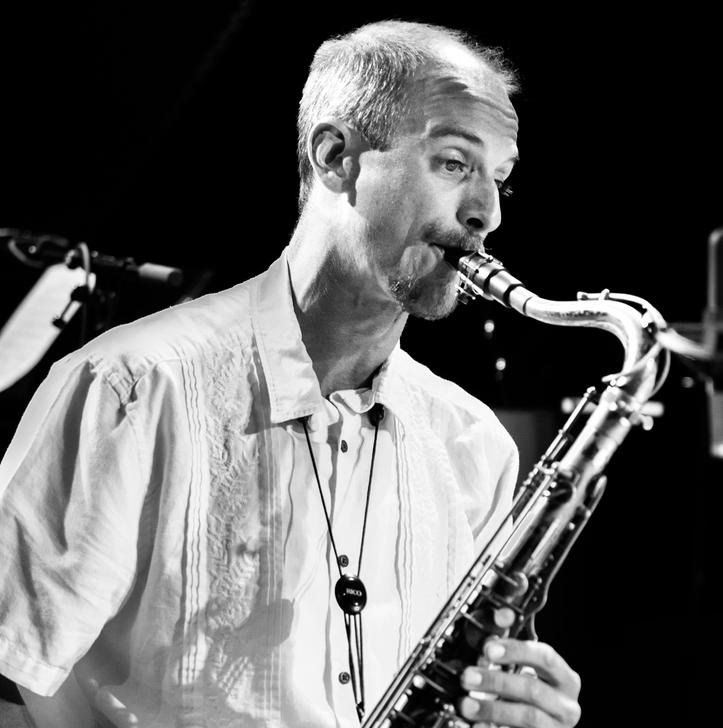




























CMEA Urban Programs Virtual Meet-up
Wednesday, April 17th, 6-7pm










 by Zack Pitt-Smith, CMEA Urban Schools Representative
by Zack Pitt-Smith, CMEA Urban Schools Representative
Hello, fellow educators in urban communities!











I am thrilled to serve as the Urban Schools Representative on the CMEA Board Council of Representatives. I have been teaching in schools of Oakland, Richmond and South San Francisco in the Bay Area for 25 years. I love it and can’t imagine doing my work anywhere else! I recognize that the joys and challenges of working in urban schools are unique and necessitate a specific set of tools. I’d love to have a chance to connect with those of you in similar environments.




What questions, concerns, desires or fears do you have about working in urban communities?






This will be an opportunity to openly discuss our biggest issues – both positive and those needing attention. Join us to start an ongoing conversation!







Please fill out this quick Google Form to sign up for the Zoom Meet-up on Wednesday, April 17th from 6-7pm. I will send a zoom link to those interested.
Please feel free to email me personally at Zachary.pitt-smith@ousd.org if you have ideas about topics for this meeting. I’d love to hear about what is working and what needs attention from your experiences.
CMEA Collegiate Council Update
CASMEC 2024 was a busy time for the Collegiate Council. The Collegiate Council hosted hree sessions for collegiate members to get involved, network with other collegiates, and build on their professional development. The first session, “Pizza With The Presidents,” was popular. All presidents representing the various professional music organizations, including the National NAfME president Scott Sheehan, were present. Collegiates got to engage with the presidents by asking questions about their education and professional development experience while enjoying pizza that was sponsored by J.W Pepper. In the second session “Life After College,” Dr. Diana Hollinger and the Collegiate Council led a session about what comes next after obtaining a degree in music. Collegiates got to learn and ask questions about master’s and credential programs. In the third session, “Community,” collegiates got to hear inspiring words from Scott Sheehan, have discussions about building community in their schools, and got to meet new people. The Collegiate Council would like to thank everyone who attended the Collegiate CASMEC sessions and hopes to see everyone again next year!
by Daniel Crispino, CMEA Collegiate Council Representative








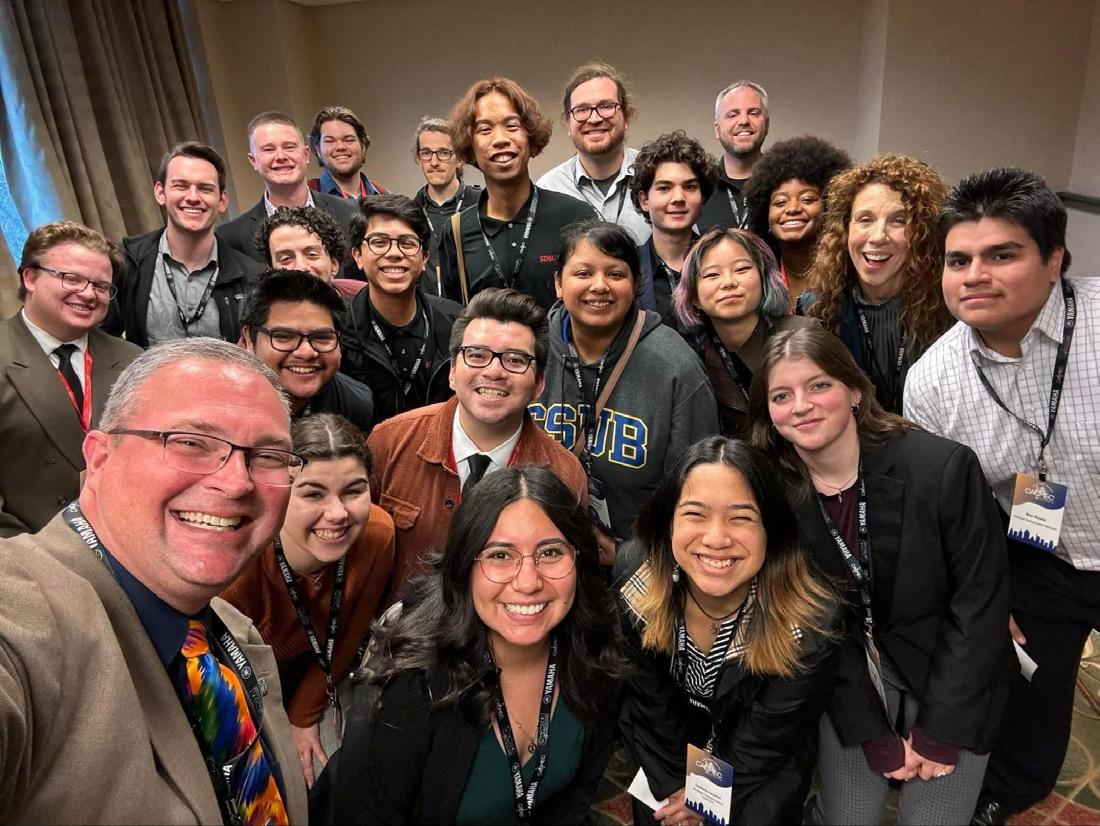










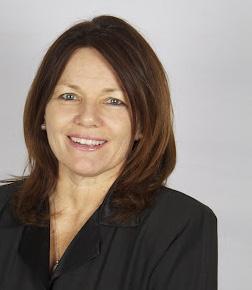















































14 CMEA Magazine
Hello from CMEA Bay Section! Bay Section Update
Sandra Lewis Bay Section President















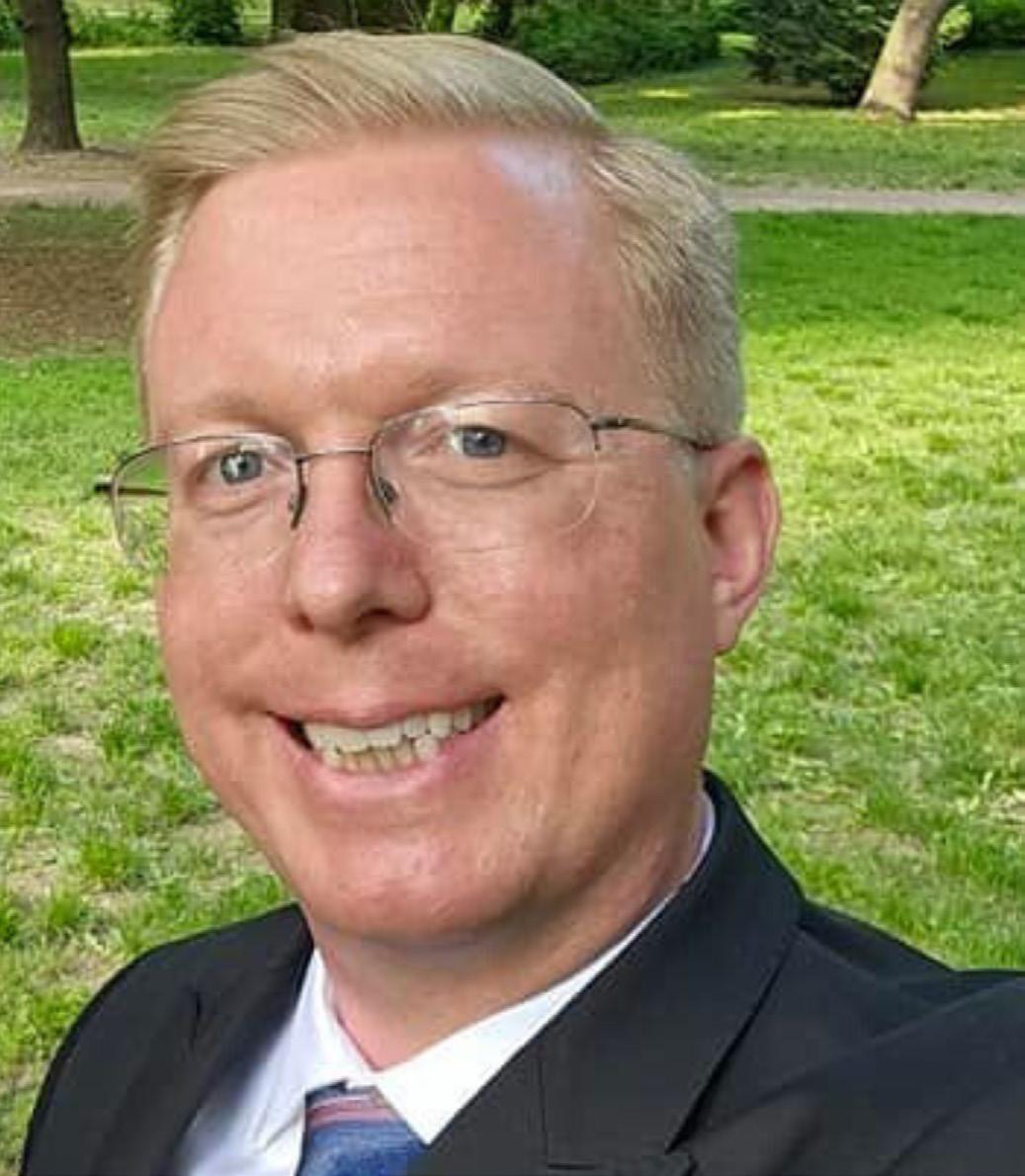
Winning In Music





I was chatting with a colleague of mine the other day at the Jazz Band CMEA Golden Empire Music Festival, and we briefly discussed what it means to succeed at a Band festival. We agreed that winning at Music is not about earning a trophy or getting a higher score than the other school down the street. We agreed that success in Music is about doing the very best you can in the rehearsal process, and then when you hit the stage, performing at the highest quality possible given the amount of time you have to prepare, and the difficulty level of the music you’re performing.
That conversation got me thinking about how many other ways we as music educators can look at success in our classrooms and performance halls. It got me thinking about how many different ways there are to win. So, what does it mean to “win” in Music? Here are a few ideas to inspire you as we enter the spring festival season.
“A good concert is the natural consequence and the gift we give to ourselves and the audience for participating wholeheartedly in the worthwhile rehearsal process.” –Dr. Robert Halseth, Professor Emeritus of Wind Studies, California State University Sacramento
Success is “the peace of mind which is a direct result of selfsatisfaction in knowing you did your best to become the best that you are capable of becoming.” – 11-time NCAA Championship winning John Wooden, UCLA Bruins Basketball Coach
“Band is not about winning. Band is about improving. Band is about setting a goal and working to achieve it. Band is about sticking to it, especially when it gets hard. Band is about finding out what you are made of. So congratulations… If you can say “I am better now than I was at the beginning, then I give you full permission to hold your head high and scream from the highest mountain tops… I WON!” - Randall Standridge, Composer
Winning in performances can be found in scenarios like…
• The forgetful percussionist who finally remembers their music on festival day
• The responsible cellist who actually did forget their music,


















Christopher J. Tootle









Capitol Section Update
Capitol Section President





but had the guts enough to own it and tell the director before it was too late

• The jazz drummer who dropped a stick but kept going, picked up the stick mid-groove, and never lost a beat



• The choir soloist who finally nailed that elusive high note after practicing every day for a month
• The elementary student who performed their first solo on their Orff xylophone despite crippling stage-fright
• The second chair trumpet who subbed on a concert band solo last minute because the first chair player was sick
• Bringing a tiny middle school intermediate band to the school’s first festival in over a decade, only to receive a III rating, but earning every single point
Winning happens off stage too. It can also look like this:
• Receiving a coffee shop gift card from the “problem” student who’s been getting under your skin all year long
• Choir kids singing their festival selections at the top of their lungs on the bus ride home
• A mom buying dinner for all the jazz band kids on the way home from their festival
• A parent sending donations to the orchestra program at the beginning of every year to say thank you because their child received a full ride college music scholarship, even though the student graduated years ago
• Receiving a letter from a student, saying thank you because Music saved them from committing suicide
• The smile on little Johnny’s face at the elementary choir concert when he finally spots his parents in the audience
May you all win during this spring festival season, whatever that means for you and your students.
Make Great Music Together!
Christopher Tootle, Capitol Section President
Spring Issue 2024 15










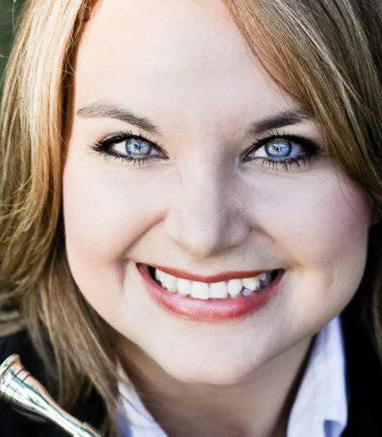
CASMEC Reflections





The experience of CASMEC was truly rewarding for so many of us in the Central Valley. We were thrilled to see the move up to Sacramento, and enjoyed hearing the performances in the beautiful Sacramento Memorial Auditorium!
We are proud to announce that the University High School Percussion Ensemble (Fresno, CA) was a featured performing group on Saturday, February 3rd, for a full audience! They were the only percussion ensemble listed in the lineup of student performing ensembles, and we were quite proud to cheer them on. Congratulations to Dr. Randall Cornelison, Dir. of Instrumental Music, and Ms. Abriana Gomez, Dir. of Percussion, and the wonderful student performers whose hard work certainly paid off!
Dr. Cari Earnhart, Dir. of Choral Activities at Fresno State, and Elisha Wells, Dir. of Band & Orchestra at Fresno City College, presented an energetic and uplifting clinic on Saturday, Feb. 3rd. Their presentation was titled Friends or Frenemies: The Advantages of Collaboration Between Band & Choral Programs. The room was packed in this early morning session, and it was clear that all the attendees were eager to learn more about band and choral collaboration. At the end of the session as questions were raised, one educator commented that they were having some trouble connecting with another colleague at their school. Dr. Earnhart addressed this person’s concerns with a few ideas about ways to reach their colleague. Shortly after that, another person raised their hand across the room and said, “I think that comment was about me,” and it soon became clear that the two audience members work at the same school site. But what happened at that moment was truly eye-opening, real, and honest. A conversation started about how we can and should reach out, even when it seems impossible, and even when our advances have been rejected in the past. Sometimes even the prickliest of pears need a little bit of sunlight. Our entire purpose as music educators is bringing people together, and the more we demonstrate that to our students, the more inclusive we become.












Elisha Wells















Central Section Update
Central Section President
CMEA State Festivals




• James Curran Middle School Advanced Choir (Bakersfield)
• Hanford High School Bella Voce (Hanford)
• Hanford High School Chamber Singers (Hanford)
• Ridgeview High School Chamber Singers (Bakersfield)
• Ridgeview High School Concert Choir (Bakersfield)
• Clark Intermediate School Symphonic Band (Clovis)
• Buchanan High School Wind Symphony (Clovis)
• Justin Garza High School Wind Ensemble (Fresno)






Congratulations to the following Central Section Choral ensembles for being selected to perform at the 2024 CMEA State Choral Festival at Sonoma State University in Rohnert Park, CA!





• Centennial High School Chamber Singers (Bakersfield)
Congratulations to the following Central Section Band & Orchestra ensembles for being selected to perform at the 2024 CMEA State Choral Festival at Cerritos College in Cerritos, CA!
• Clovis North Educational Center Wind Ensemble (Fresno)
• Farmersville High School Guitar Ensemble (Farmersville)
• Clovis East High School Chamber Orchestra (Clovis)
16 CMEA Magazine















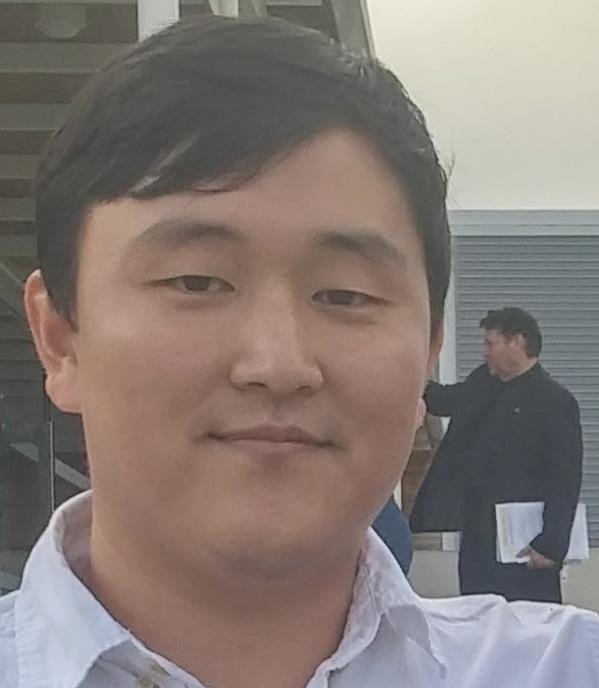
CASMEC Reflections





It has been a few years since I have attended CASMEC. I was not able to attend last year during my first year as the Central Coast President because my first child was born around that time. But let me say, I learned so much in all the sessions I have attended and the ones I had to preside over.
The biggest takeaway was all the different Mariachi resources that were available this year. I live in Salinas, also known as Salad Bowl of the World or Steinbeck’s Country. The school I work at is located in the East side of Salinas, which is predominantly Hispanic. My school site is 96% Hispanic/Latino descent and 95% of students are eligible for free or reduced lunch. I have been teaching here for 9 school years now and within those nine years, I have not started a mariachi program. My biggest problem was that I did not know where to start. Also, many students wanted to play more corridos than mariachi.
This year at CASMEC, I really appreciated the focus on mariachi. It seems with Prop 28, the interest of starting mariachi has inspired many of us music teachers to start a program. I really enjoyed talking to all the different speakers on what it takes to start a program and talking to the vendors about getting the correct resources, from teaching materials to correct instrumentation and clothing attire. With last year’s grant from the state, I was able to purchase many of the mariachi/orchestra instruments. I hope with Prop 28, I would be able to hire a mariachi coach to help me teach the class correctly, especially in the area of understanding the culture and style.
Another takeaway from CASMEC is the choir resources. Even though I have been teaching choir for the last nine years, it is still not my expertise. I am an instrumental person, but I learned all my pedagogy through choir. I really have to thank my choir classes for making me a better teacher. Every time I come to CASMEC, I always attend at least three or more choir sessions. This year, I attended a lot on how to conduct the choir and how to use my conducting style to engage students into the music. Just keeping a beat or when to point is not enough, but to really think about the passage of the music and how to elevate it in a way where the












Sam Oh


















Central Coast Section President
students will follow with the flow of the music.






Central Coast Section Update
Overall, this year’s CASMEC was phenomenal. Not only was it located in Sacramento, which is a big plus from Fresno (sorry, Fresno!), I really enjoyed all the different sessions and all the new friends and connections I made at CASMEC. I am really looking forward to next year.
Spring Issue 2024 17










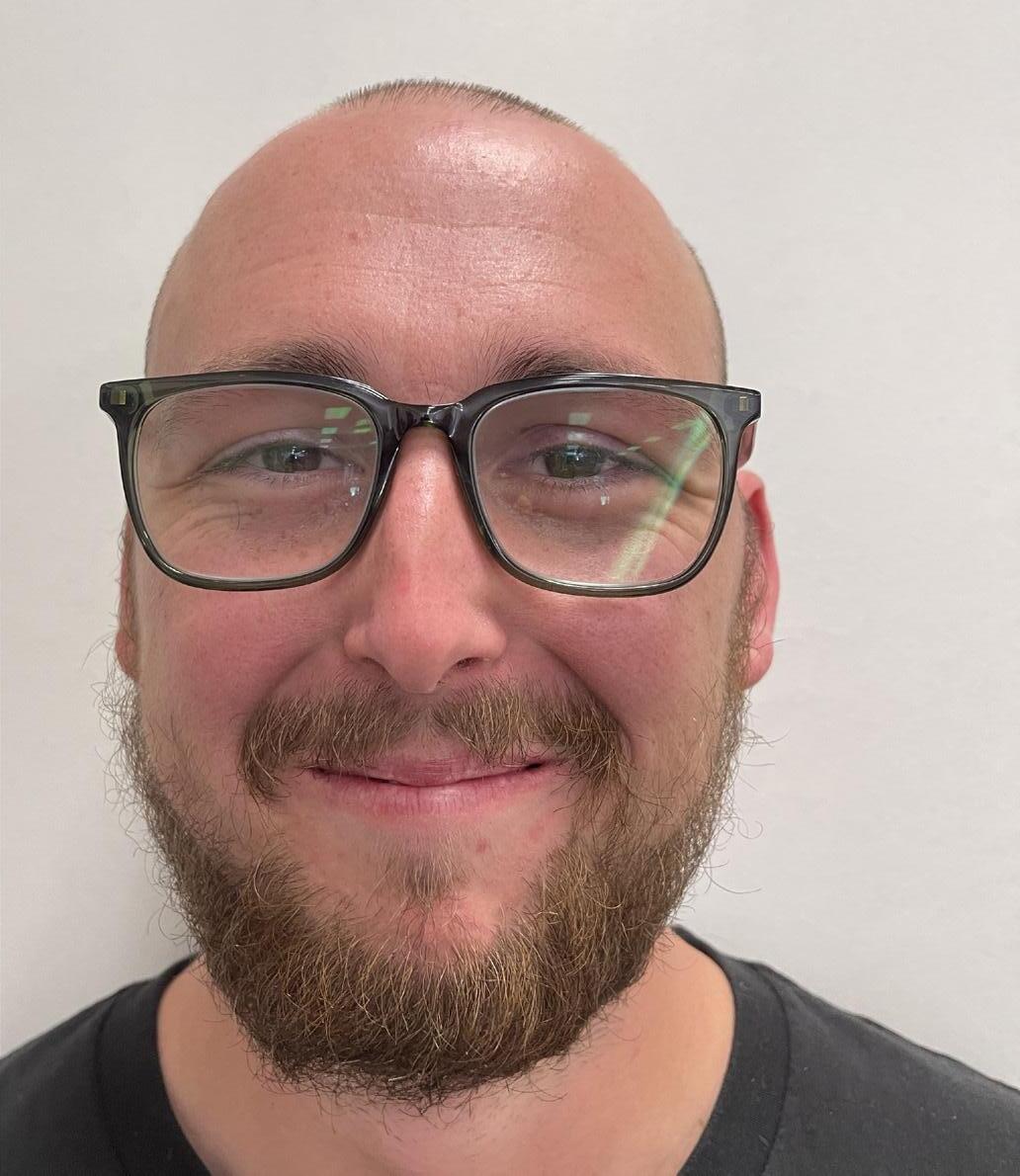





This February we held our annual All County Music Festival which brings together students from 25 local schools to form seven different ensembles. Our event was held at California State Polytechnic University and Arcata High School this year, which was nice. We appreciated that everyone had space to rehearse but we are hoping next year to get everyone on the Cal Poly Humboldt campus.
It was exciting to see so many students working hard to perfect their pieces and put on an amazing show. The concerts went really well. All of the groups sounded great and the students looked like they were having a lot of fun. It was especially nice to see students from different schools interacting and making friends with each other.
Due to support from the Humboldt Office of Education, we were able to bring in some topnotch out-of-town directors for our senior groups. Dr. Jenny Bent conducted the senior choir, Ried Blinkenstaff conducted the junior orchestra, while Christian Baldini conducted the senior orchestra. One of our local teachers, Audrey McCombs, conducted the senior band. It was exciting to see the way these conductors worked with the students and created excitement about the music.
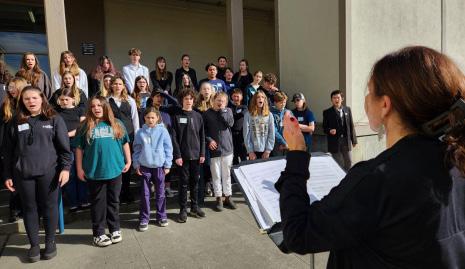


















Collin Kirkwood










North Coast Section President









North Coast Section Update





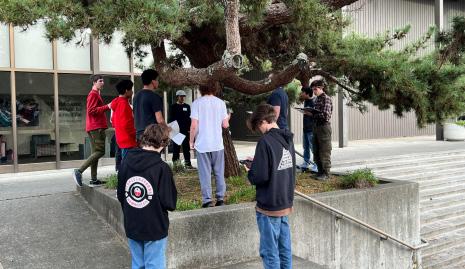
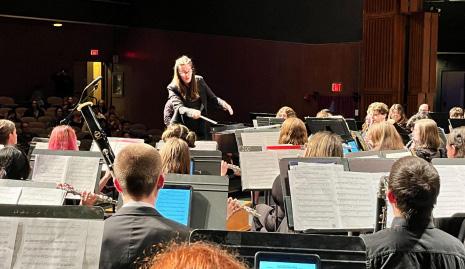
Overall, it was very nice to have live music highlighting students in a way that many of these students don’t get to experience often. All of the teachers were working so hard and a huge thanks to all of them for making this event happen.
18 CMEA Magazine
Anna Pinsky running a rehearsal of the junior choir. (Photo credit: Meadow Lo)
The bass section of the senior choir singing to a tree during their sectional. (Photo credit: Chris Cox)
Audrey McCombs conducting the senior band. (Photo credit: Chris Cox)















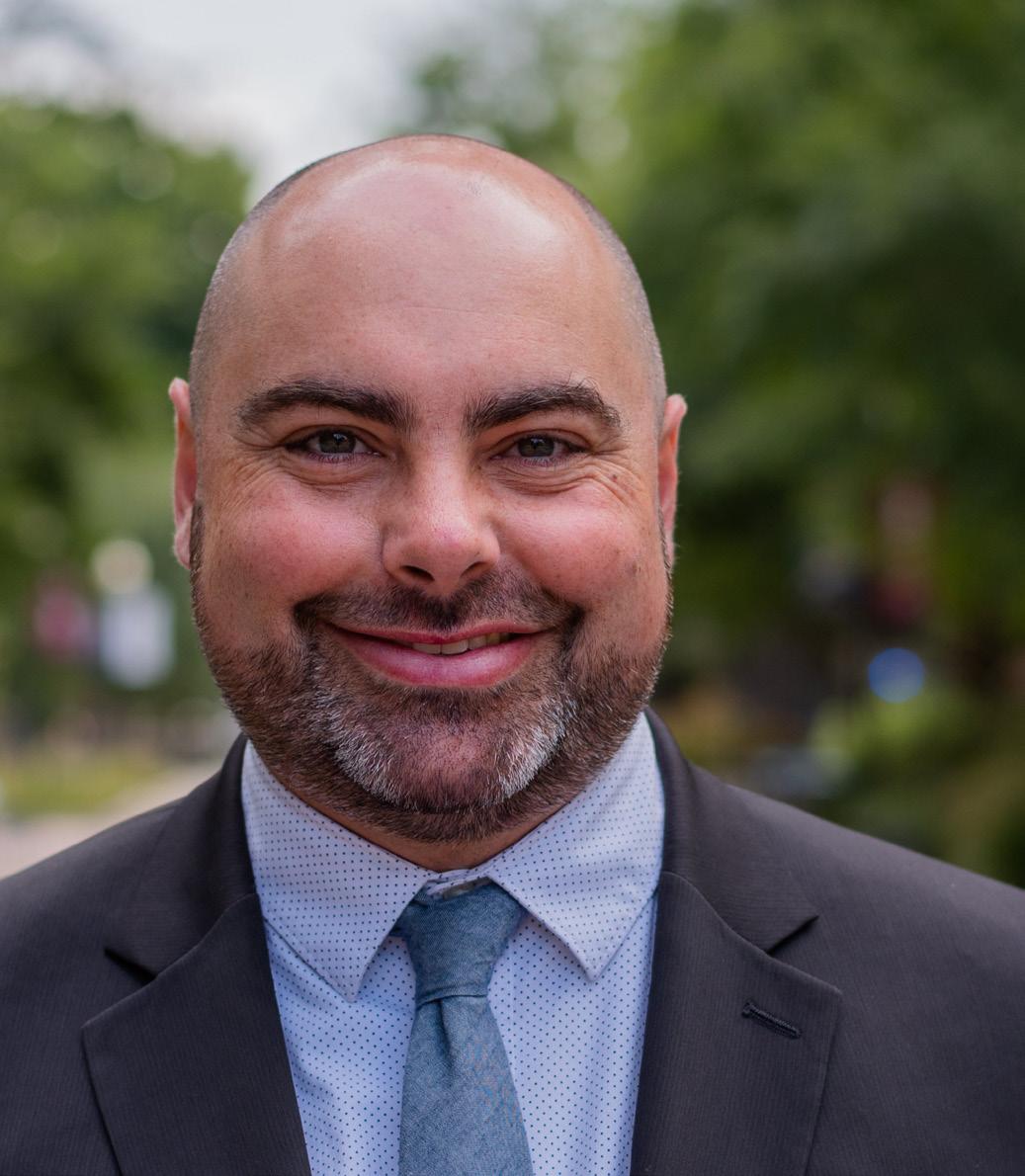
Greetings from the North Section!





As the school year turns to Spring, the Northern Section and our membership, like many of the others, are busy preparing our students for large ensemble festivals, solo and ensemble festivals, Spring concerts, field trips, and more. It is a busy time of year for everyone. I know from personal experience that for both new teachers and old, this time of year can burn you out. My best advice is to continue to find laughter in the daily interactions with students and how joyous music-making with them can be. We all know that not all of our students will leave and become music majors or professional musicians, but they all will remember how you made them feel and the experiences you shared with them.
The northern section board continues to work to create a healthy community of music educators in the north state, provide a variety of opportunities for students to perform, and host professional development programs that benefit teachers at all levels. Under the direction of and thanks to the efforts of Nora Hunter, we co-sponored a Northern California Music Teacher Institute - a Kodaly approach to teaching at all levels. Continuing education units were available through CSU, Chico, and CMEA-NS members could have that unit cost reimbersed. It was a tremendous success and a revitalizing experience. This summer program will continue. Look for more information and registration soon.
I hope everyone has a wonderful and successful end to this school year and takes time to enjoy their summer. As always, the Northern Section board and I are here to serve you. If you have any questions or concerns, don’t hesitate to reach out to me or any board member.












Tanner Johns















Northern Section Update
Northern Section President





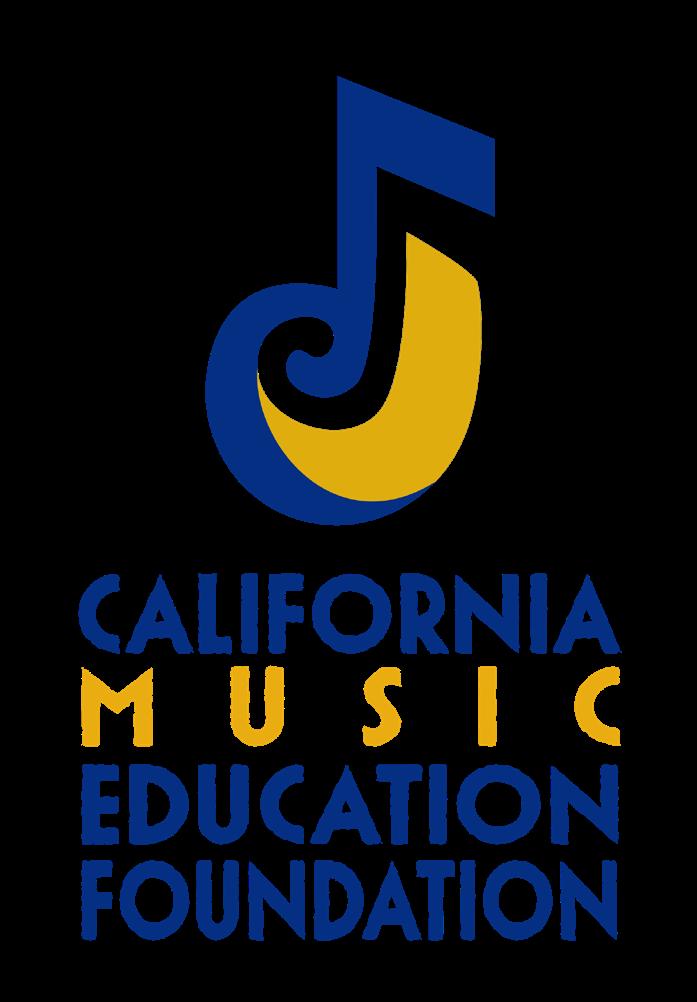




The California Music Education Foundation is a 501(c)3 California Nonprofit Public Benefit corporation that supports charitable and educational efforts to promote quality music instruction for the children and adults of California.
To donate, or to receive more information, visit: https://calmusiced.com/cmef/
Spring Issue 2024 19










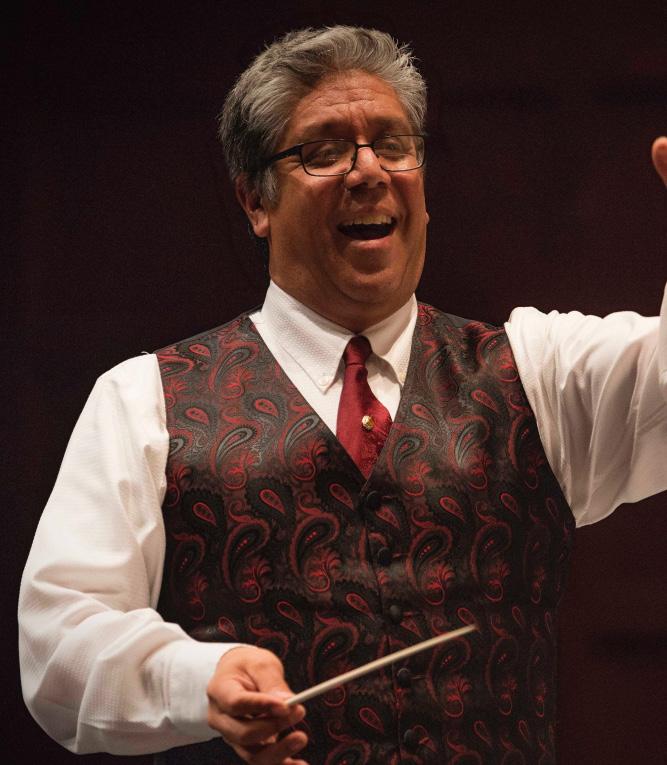 by Fernando Penaloza, CMEA Member-At-Large
by Fernando Penaloza, CMEA Member-At-Large





Four Essential P’s of Music Education: Considerations of Classroom Pedagogical Practices


















Dr. David Betancourt












Southeastern Section President
Introduction






Southeastern Section Update
I believe most music educators can relate to the constant juggling act of preparing students for what seems like non-stop, year-round performances. After all, we are all musicians at heart! Although a busy performance schedule can be fun, and exhilarating, and certainly full of educational merit, it is crucial to consider how the education component remains prominent as a part of performance preparation. In other words, let us consider how Performer, Planning, Process, and Product play a comprehensive role in the overall educational pedagogical approach in the classroom.
Overview
The above “P’s” were listed in the above order, because the idea is that the one leads sequentially to the next, and that there is really a sense of flow or transparency and overlap between each of them with no clearly defined starting point (see Figure 1 below). For example, by prioritizing the student Performer at the forefront of our pedagogy and practice, it implies that we would center our planning around the areas of needs of our student performers, and then focus more on the process of learning than the product or performance. Thus, providing a pedagogical template that is centered first and foremost around the student. However, we will begin this section with Performer and Product for the sake of this paper and then discuss and combine Planning with Process. I believe that no great music educator would argue against providing a student-centered approach to music education. With that in mind, the following might serve as reminders, new suggestions, concepts, or questions for reflection as we continue to refine our pedagogical approaches and practices in the classroom. These shared ideas are by no means meant to be either prescriptive or all-encompassing.
Performer & Product
Value the performer more than the performance or product. The latter statement is one that I personally live by in my own pedagogical practice and philosophy. However, I need to also remind myself of that statement, particularly as I get caught in the weeds of continuously preparing for performances. Over my
20 CMEA Magazine
The following article was written by CMEA Member-At-Large Fernando Penaloza, Director of Instrumental Music at Savanna High School in the city of Anaheim.





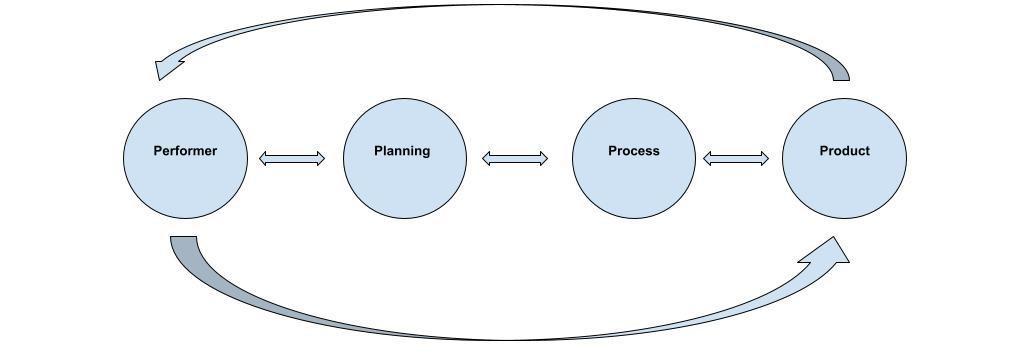
career, I have learned that sometimes less is more, that it is okay to not over-schedule many performances for my ensembles, or that saying no to certain performance requests is sometimes okay. Now, I understand that there are certain performance requests one may not be able to always say no to, particularly if it comes from your principal or arts administrator, or if you feel it is in the best interest of your students and your program. Regardless, one must consider the human element that makes up our ensembles. Students go through the wide-range spectrum of life that we adults encounter, including adverse circumstances, and bad days. We can also consider the many roles students play within their lives, including outside pressures and expectations placed on their shoulders. I know, shocking to say that our music classes are not the only thing on students’ plates! Grace and flexibility are a key component of valuing the performer more than the product or performance, without compromising your non-negotiables and expectations for your students within your program. What is that balance, you ask? That will look significantly different based on what is important to you and your program, and what may or may not align with your own music educator pedagogical approach and philosophy. High standards and high expectations are great (because students will truly rise to meet them when held consistently accountable). However, sometimes we may not necessarily need to keep doing something “one more time.” Or perhaps, we may not necessarily need to add that extra rehearsal on a holiday, or extend a particular rehearsal. Allowing the students to be human and experience humanity will not necessarily detract from the product or performance. It is by no accident that I believe that Performer and Product are on the outer ends of the flowchart in Figure 1, providing a bookend of sorts on either side, thus reinforcing the importance that both concepts go hand-in-hand with each other.
Planning & Process
I strongly believe that without a very clear plan, it will be very difficult to create a pedagogical process that is sequential and scaffolded in the classroom. As music educators, we live very busy lives and certainly wear many different hats a lot of the time within our roles. However, taking some time to backwards plan units, lessons, or even larger overarching goals for our programs will provide a north star that will guide what (ex. content standards, or actual content material of things we will teach to students) we do, why (educator philosophy) we do things, and then the how (the methodology). There is a final but very essential step that ties into all of this: the Assessment process, but that is beyond the scope of this particular article and really an entire conversation in itself.
The proverbial Chinese saying of “Give a man a fish and you feed him for a day. Teach him to fish and you feed him for life,” sums
up what I believe to be the importance of valuing the learning process more than a product or performance. Quality of process (whatever that may look like for you is okay and will be different) is key, and will be most effective when it is intentional, sequential, clearly defined, and consistent. It is important to reflect on what foundational musical skills and concepts we are teaching, along with instilling a love and appreciation for the learning process (which calls upon building on the soft skills and socio-emotional learning). In other words, I am suggesting that we teach both content and technical skills, but also soft skills and socio-emotional skills that dig deep into the strains of the very essence of what it means to be human, and thus the artistry behind music-making. One of my personal goals and tenets of my philosophy is that I aim to create life-long learners and advocates of music through instilling both a passion for music and learning. The latter is more valuable to me than preparing my students to play a great concert (although that is also important to me and certainly of merit within my program), but I would much rather not “teach to the test”(the test being a specific musical piece), but teach my students how to “fish” by providing them more long-term foundational experiences as both technicians and artists through the vehicle of music.
Conclusion
The beauty of what we do is that we get to refine our pedagogical decisions and live in continuous reflection and improvement, just like what we would hope and expect of our students. Process and the improvement thereof is a long-life journey that can be extremely rewarding when we value the performer beyond fulfilling performance or product obligations. And, when we can plan with intent and thoughtfulness, the learning process begins to take more precedence and is deepened through magical, artistic experiences that will leave life-lasting impressions on the trajectory of students’ lives.
In other Southeastern news, the region held a very successful social at CASMEC this year and is gearing up to collaborate with the CMEA All-State Band and Orchestra Festival on April 6th at state-of-the-art facility at Cerritos College as well as the CMEA AllState Solo and Ensemble Festival at the same location on May 4th. The region will also host the second annual Mariachi Showcase on May 4th. Exciting happenings in the Southeastern region!!
Spring Issue 2024 21
Figure 1.









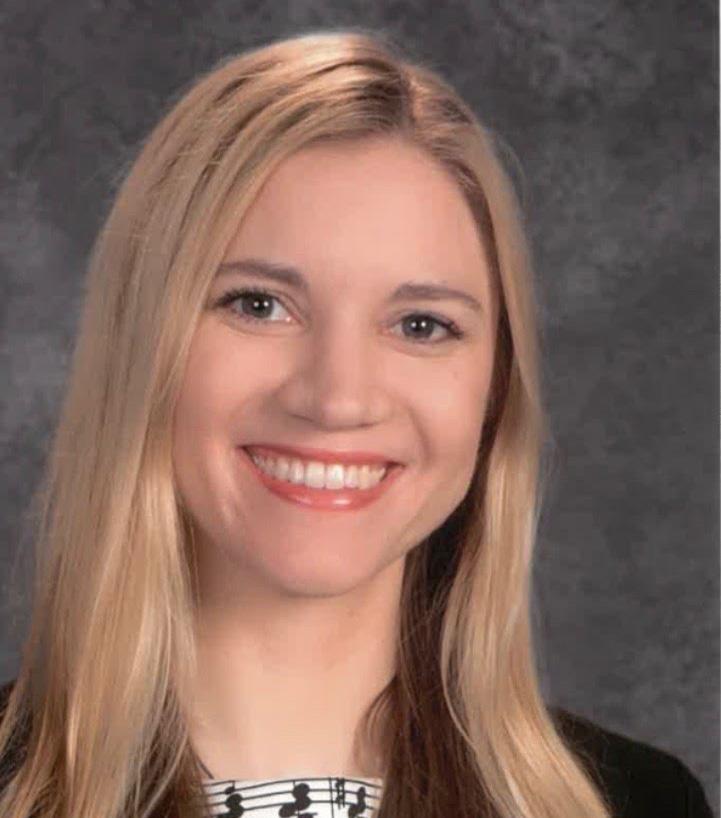
Upcoming Events






• Middle School Choral Festival, March 8, 2024, Challenger Middle School.
• High School Choral Festival, March 11, 2024, Poway High School.
• Band and Orchestra Festival for Middle/High School, March 13 - 14, 2024.
• Middle School Band and Orchestra Festival, April 13 - 14, 2024.
• Elementary Choral/Instrumental Festival, April 27, 2024, PLNU.
• Band and Orchestra Festival for Middle/High School, April 28 - 29, 2024.
CASMEC Reflections
The Southern Border Section was absolutely thrilled to arrive at our new Sacramento location. As a section that prides itself on social gatherings, we were happy to explore the city’s vast array of restaurants and music venues between all of the wonderful clinics and concerts.
Our immediate past President, Dr. Jeffrey Malecki, had two especially rewarding experiences. On Thursday, he was happy to sit down with Dr. Katilin Bove, CBDA Diversity representative, and the two composers who made up this year’s CBDA Social Impact Band Consortium, Aakash Mittal and Shruti Rajasekar. They became fast friends — what outstanding, dynamic people! — and we hope to bring them to the bottom of the state soon. Their pieces, incorporating teaching tools to help bands learn authentic Indian ragas and stories, will undoubtedly be a mainstay of band repertoire very soon. Dr. Malecki also attended the annual unofficial California college band directors gathering, which is really what conferences like CASMEC are all about: networking with the best of colleagues, sharing ideas, and having a good time. “I feel very lucky to have a group of such talented and ego-free colleagues!”Dr. Malecki.
Our Communications Representative, Dr. Karen Koner, shared the following: “The students and faculty of San Diego State


















Emma Schopler













Southern Border Section President
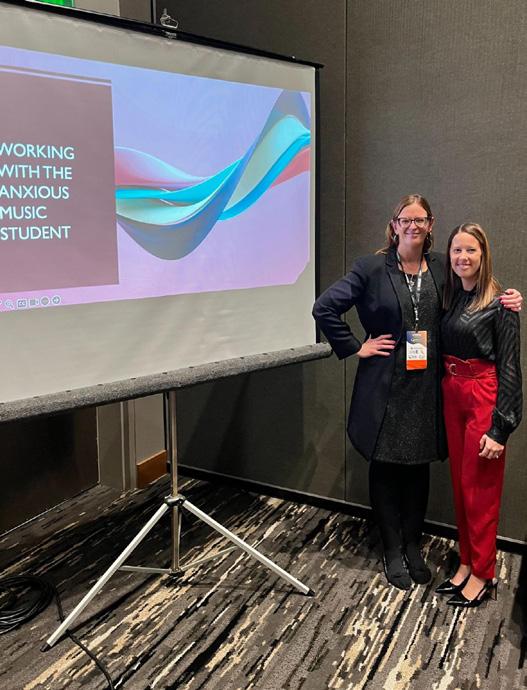






Southern Border Section Update
University had a wonderful CASMEC in February. The music education seniors received a grant of $17,000 through the university to travel to the event. With the assistance of their faculty sponsor, Dr. Jenny Gee, 12 music education students from SDSU had the opportunity to attend workshops and professional development sessions. Dr. Jenny Gee and Dr. Karen Koner presented their research in the research poster session. Dr. Karen Koner and Professor Abigayle Gerdes presented a session titled “Working with the Anxious Music Student” to a standing-room-only crowd. Additionally, SDSU Music Education alumni Charles Mekeilan presented his work with music technology and Ben Scharf made his CASMEC conducting debut with the Homestead High School Band. SDSU looks forward to CASMEC 2025!”
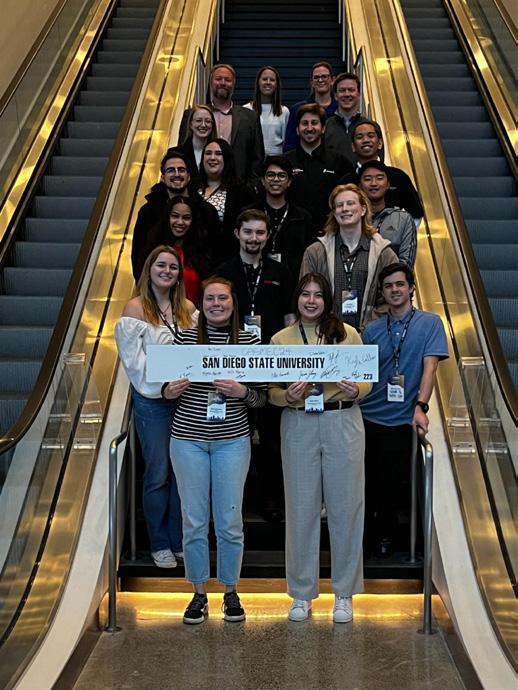
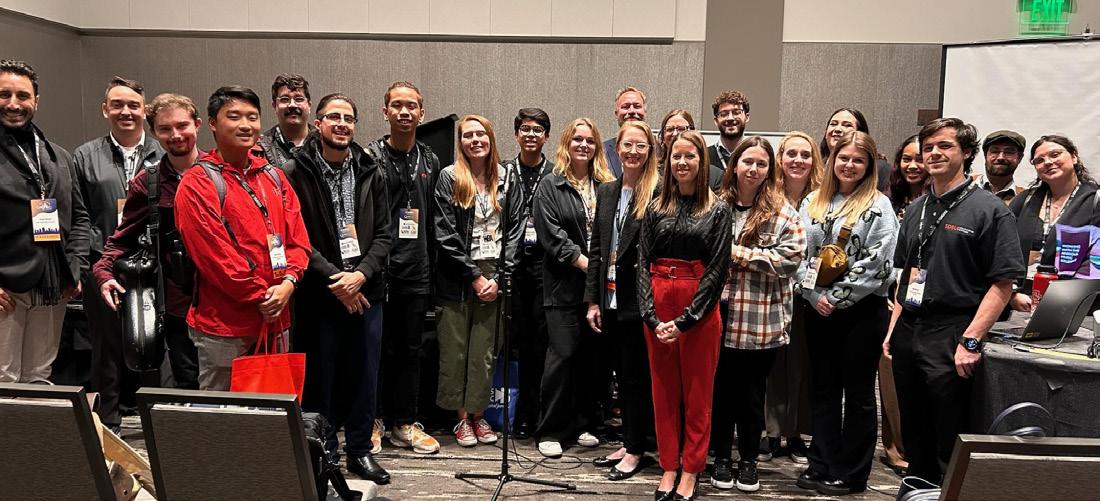





22 CMEA Magazine















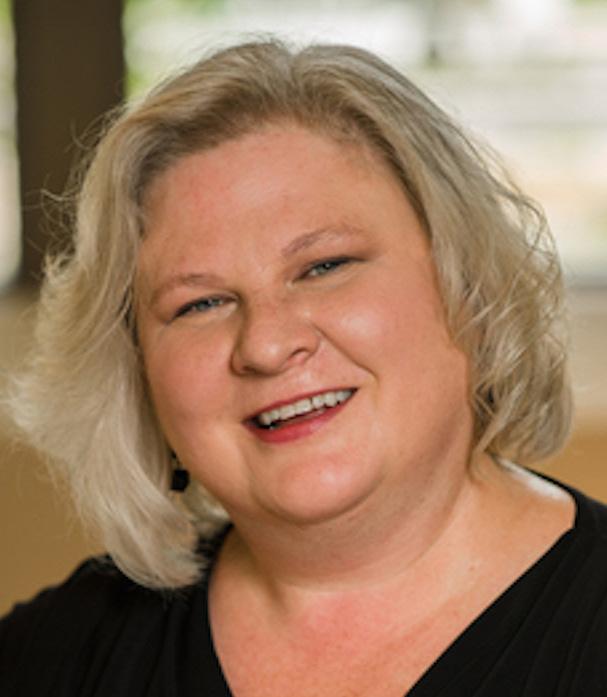
Celebrating CASMEC 2024





Looking back to CASMEC 2024, we experienced and celebrated many music educators and their specializations. From colleagues sharing their insights and scholarship through presentations, to reconnecting with former students and co-workers, to engaging in new learning and skill sets, CASMEC 2024 offered a breadth of opportunities to learn and invigorate our practices in music education. Reuniting all facets of the conference to one venue created an energized and bustling atmosphere which we will look forward to engaging at future conferences.
As music educators, we know that much of what we do is unseen or unrealized, so it gives me great pleasure to acknowledge and celebrate music teachers from the Southwestern Section who were recognized by the California Music Educators Association.
Alix Aber, CMEA Judy Pine-West Music Award Recipient (new award as of 2024)
Celebrating an early-career music educator committed to creating new hands-on classroom experiences
Julie Corallo, CMEA Peripole General Music Educator Award Recipient
Honoring excellence in general classroom music education
Amy Lui, CMEA Innovations Award Recipient
Honoring excellence in expanding pathways to engage students in music
Cathy Olinger, CMEA Hall of Fame Award Recipient
Honoring a lifetime of achievement in music education
Lisa Pate, CMEA Byron Hoyt/Don Schmeer Band Educator Award Recipient
Honoring excellence in instrumental education and performance


















Dr. Tamara Thies












Southwestern Section President






Southwestern Section Update
Angelo Woo, CMEA Middle School Music Specialist Award Recipient
Honoring excellence in middle school instrumental and choral music instruction
Congratulations, award winners! Thank you to all music educators for your continued commitment and work to educate students through music. You are valued and appreciated.
Spring Issue 2024 23
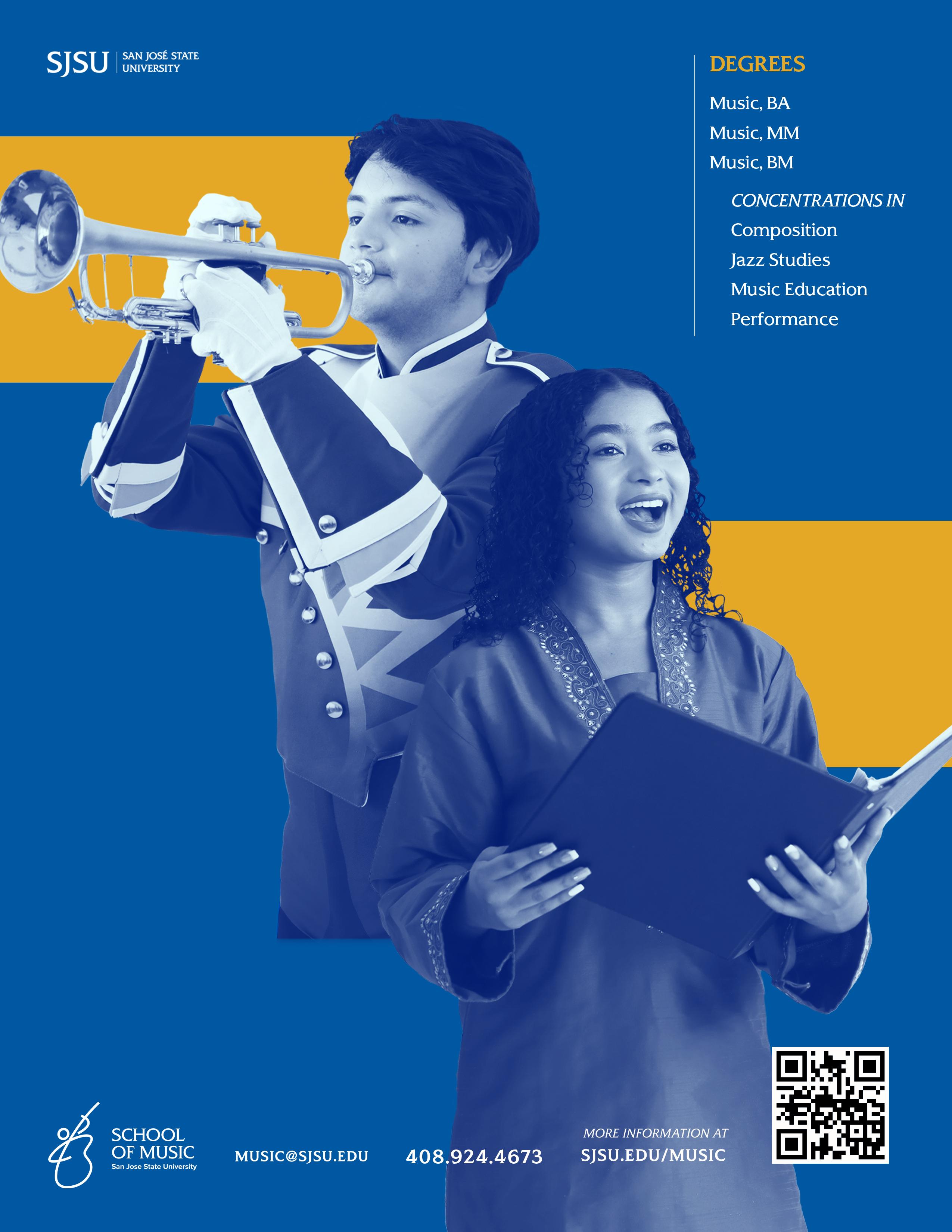


2024 CMEA Research & Educational Projects Poster Session
by Dr. Ruth Brittin, CMEA Research and Higher Education Representative




We are pleased to present the abstracts from the Research and Educational Projects Poster Session, presented in the lobby outside the Exhibit Hall, at the 2024 CASMEC conference in Sacramento. Presenters included faculty, students, and educational professionals sharing their work in a “come and go,” conversational manner with conference attendees on Friday morning, 8:45 - 10:00. Work included papers being considered for/accepted for publication, undergraduate research and capstone projects, graduate research projects, masters theses, and professional development workshops and initiatives developed across the state. Authors may be contacted directly through their institutions for more information. We enjoy this opportunity to share our research and professional development work, and we look forward to more sharing at this annual CASMEC event.
PRESENTERS
Kelly Adams, University of Southern California Kodály music educators should use popular music to engage their students in music literacy
Ruth Brittin and Jeremy Clifton, University of the Pacific A Preliminary “Read” of Gender-Based Language in Sample 20th c. Instrumental Music Education Textbooks
Julie Bistolfo, Marguerite Montgomery Elementary School, Davis Joint Unified School District Music to Support Routines, Positive Behavior, and Connection. A presentation reflection from the conference “Parenting with an Understanding of Child Development”
Giulia Bratosin, University of Southern California Distributed Creativity in Music: Empirically Applying Two Theoretical Models to Collaborative Composition
Molly Bowleski, University of the Pacific Choral Students’ Perceptions of Kinesthetic Pedagogy in the Middle and High School Choral Classroom
Jeremy Clifton, University of the Pacific and Riverbank Unified School District
Pitch Discrimination by Elementary Aged Children: A Pilot Study of Observations in Action
John Eros, California State University East Bay
The Kodály Concept: A Foundation for Culturally Responsive Pedagogy and Social Justice in Contemporary Music Education
Jennifer Gee and Karen Koner, San Diego State University Professional Quality of Life Among Music Faculty in Higher Education
Frank Heuser, UCLA, and John Burdett, Azusa Pacific University
Maggie Juarez, University of the Pacific Exercising Musical Potential: A Review on the Effects of Fitness on a Musician’s Abilities
Madison Karzin, University of the Pacific. Literature Review: Benefits of Supplementing Percussion Method Books with Private Materials for Young Percussionists
Karen Koner, San Diego State University
A Content Analysis of Graduate Studies in Music Education in NASM Accredited Institutions
Kim Mieder, California State University - Sonoma The Noma Winds Project
Emily Osborne, Lodi Unified School District and San Jose State University
The Social Benefits of Mainstreaming Students on the Autism Spectrum into the General Music Classroom: A Study of First Grade Music Class and Best Practices for Increasing Socialization
Sophia Rechel, University of the Pacific Exploring Expression and Creativity in Young Musicians within Ensembles
Luis Talamantes, University of the Pacific and Stockton Unified School District Music Theory at the Secondary Level: Embedded in Large Ensembles?

Nuancing the Large Ensemble: Nurturing Practices in Ensemble Teaching


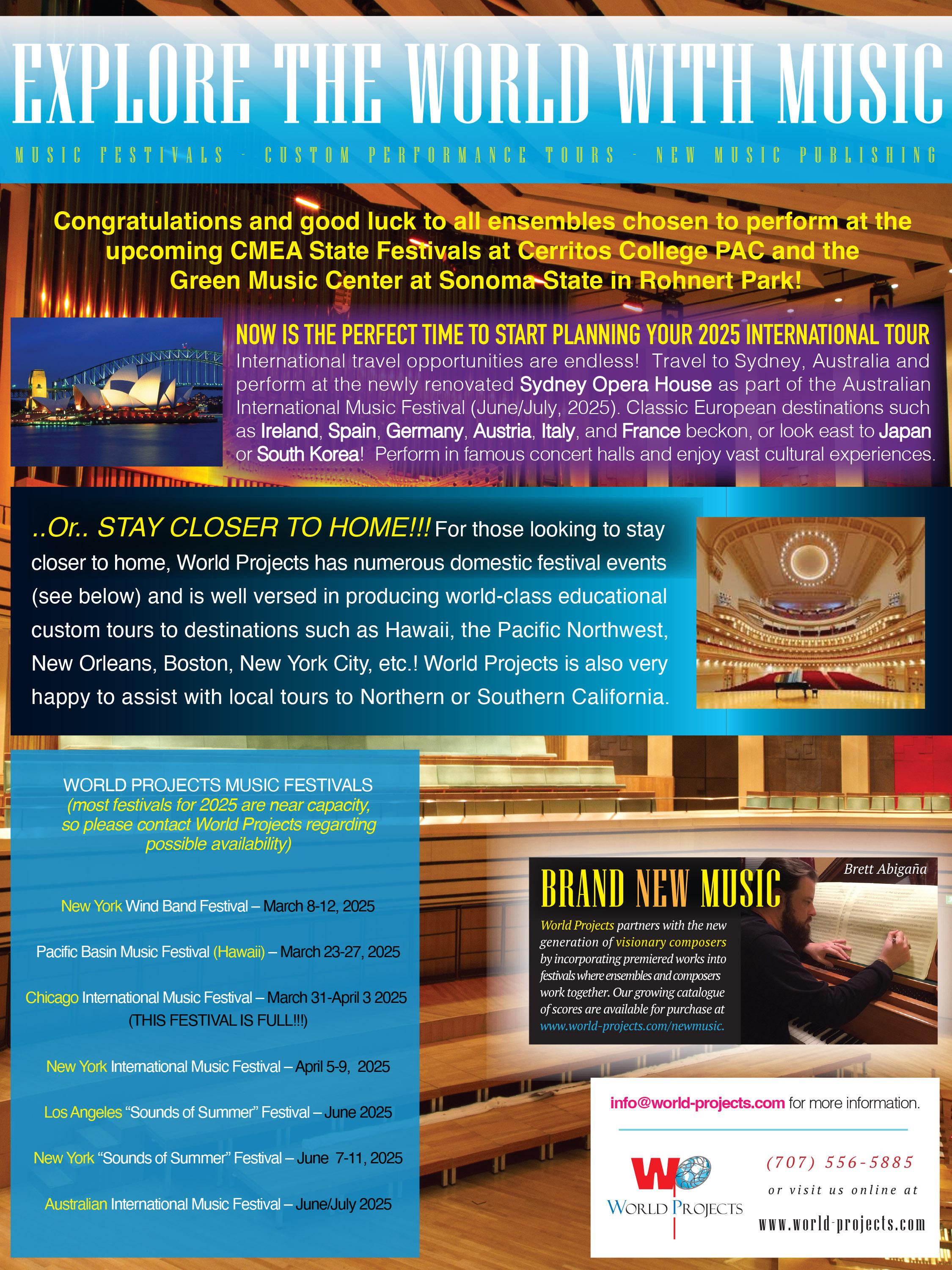
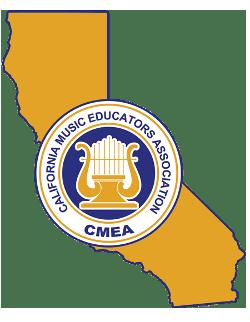
PREREQUISITES
CMEA Solo & Ensemble Festivals 2024
To be eligible, a soloist or small ensemble must have received a Superior or I rating at a CMEA-sponsored or CMEA-sanctioned* solo and ensemble festival during the previous (2022-2023) or the current (2023-2024) academic years. (*Festivals from the following CMEA-affiliated groups are considered sanctioned for the CMEA State Solo and Ensemble Festival: SCSBOA, SCVA, MTNA, and other events approved by the CMEA Board.) Previous State Festival ratings do not qualify for the current State Festival. You must participate in a regional festival to be eligible for the State Festival.
Participating directors and/or private studios must be members in good standing of CMEA at the time of application and festival performance. For members in good standing of SCVA and SCSBOA, a current waiver of this requirement will apply for the Southern California/Cerritos College site.
PARTICIPANT FEE
The participation fee for 2024 State Solo and Ensemble Festival is $75.00 for each soloist and/or $100.00 for each ensemble; an event accompanist (includes 15 minutes rehearsal time before performance) may also be requested for an additional $50.00. There are no refunds after April 5. Refunds requested before April 5 will be granted less 20% of the original registration fee.
PERFORMANCE TIME LIMITS
Performance slots are limited to 15 minutes. Music selections must remain in the 15-minute time frame. Performers who exceed the stated time limits will have the performance stopped by the performance room proctor. If a performance must be interrupted, it will have no effect on the judges’ ratings of that performance. (No penalties will be imposed for excessive time)
FESTIVAL RATINGS AND COMMENTS
Each solo and ensemble will receive written comments in several categories from two adjudicators. These scores will be averaged for the final rating. Adjudicators will not consult with one another in their rating of any performance.
All performances will earn a Bronze, Silver, or Gold Level rating. Some performances might receive a Command Performance, which is a rating based on both adjudicators awarding a Superior (I) or Gold rating in all categories. This is the highest award given and might result in an additional performance on the given date (in the Southern California venue only). Individual medals and plaques will be available for purchase on-site only.
Sponsored by
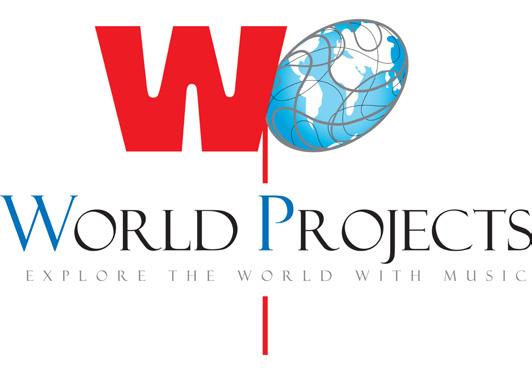
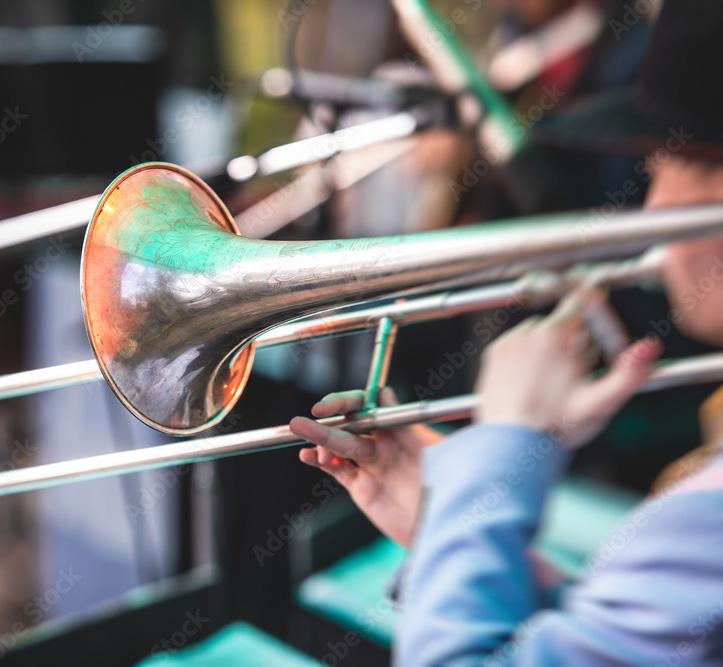
CATEGORIES AND REQUIREMENTS
Each participant needs to bring at least ONE original score for the adjudicators.
Solo entries are welcome for vocal, band, orchestral, guitar, ukulele, etc., and additional instruments, though not listed. Music performed should be in a genre that best displays your highest level of expression and performance abilities and skills. Small ensemble entries are also welcome and are limited to a maximum of 16 performers, regardless of part division. No ensemble may be conducted with the exception of a large percussion ensemble. Recorded accompaniments are not allowed at the CMEA State Solo and Ensemble Festival. However, if an accompanist is not available for your performance you may perform without accompaniment or pay the $50 fee to hire an event accompanist on-site. All performers, including accompanists, must appear live to participate.
Any person may play the accompaniment for any soloist or ensemble, provided that such accompaniment is not a featured or solo part to be adjudicated. If it is an integral part to the adjudicated performance, a student and not an adult or professional pianist must perform such accompaniment.
LOCATIONS AND TIMES
Sacramento (Northern CA) location: Saturday, May 4, 2024Performances will be scheduled from 9:00 AM to 4:45 PM.
Cerritos (Southern CA) location: Saturday, May 11, 2024Performances will be scheduled 9:00 AM to 4:45 PM.
TO REGISTER:
Registration opens March 7, 2024, via the CMEA website: https:// calmusiced.com/membership-services/state-festivals/
Spring Issue 2024 27
Music Composition Walking Gallery 2024
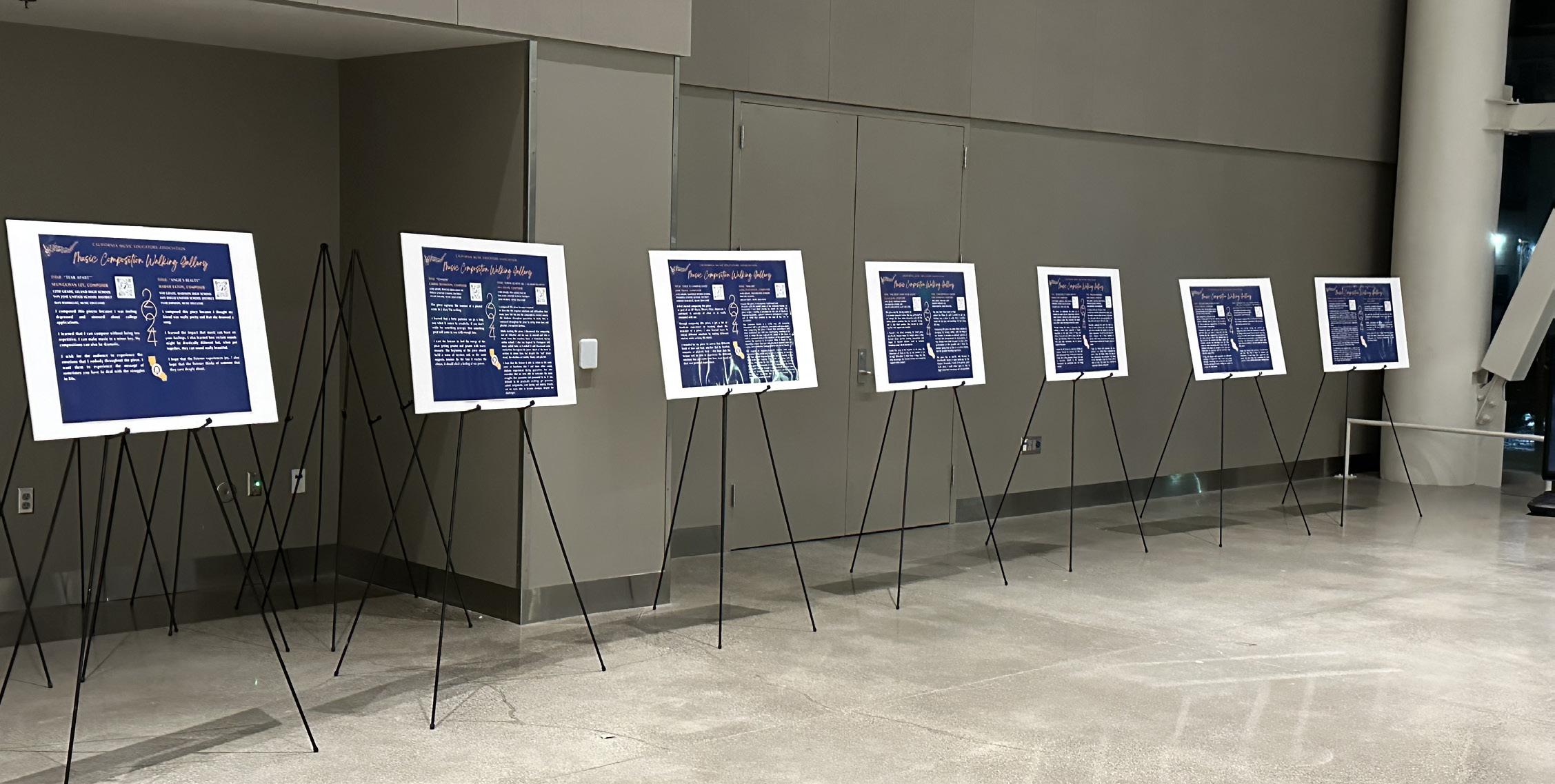
TITLE: “KNOWLEDGE OF GOOD AND EVIL”
JOSHUA AHN, COMPOSER
11TH GRADE, AMERICAN HIGH SCHOOL
FREMONT UNIFIED SCHOOL DISTRICT
RICHARD WONG, MUSIC EDUCATOR
The reason for composing this piece was to abandon my usual style of composition, which is rather classical, and use my skills obtained from it to compose a piece that represents the actual genre that I enjoy listening to every day: metal.
Through writing this piece, I discovered that making a metal piece impactful is hugely dependent on the right choice of tones and effects. I learned to be able to choose and alter tones and determine which of them would fit well with other instruments and the general mood of the piece.
I intend for the listener to experience feelings of vigilance through the relatively fast beat and dark chord progressions. As the piece progresses, I hope their feeling gradually changes into angst or uneasiness, boosted by the djent-feel dissonances and polyrhythm near the bridge section.
TITLE: “REQUIEM FOR WINDS”
JAMES BARRERA, COMPOSER
10TH GRADE, COALINGA HIGH SCHOOL
COALINGA HURON UNIFIED SD
KEVIN BRUMANA, MUSIC EDUCATOR
I composed this piece because I want to share my creativity and passion for music with the world. I want to share my story of personal loss and grief with my great-grandmother and help others who may be feeling the same.
Musically, composing this piece has made me learn to truly appreciate how each individual part of an ensemble fits together to form the whole composition. Not only has this made me a better composer, but a better musician in general. Above that, I learned how music can be used to express emotions and thoughts outside of words.
I hope the listener will experience the true emotions I was feeling when I composed this piece. I hope the listener follows the story of loss, reminiscence, and acceptance I was trying to tell. And finally, I hope the listener will see music as more than sound, but a medium for expression, emotion, and passion.
28 CMEA Magazine
TITLE: “AS EVERYTHING CEASES TO EXIST”
MASON SAWYER, COMPOSER
8TH GRADE, ETHEL DWYER MIDDLE SCHOOL
HUNTINGTON BEACH CITY SCHOOL DISTRICT
NEIL REYES, MUSIC EDUCATOR
This composition is based on the spiral of depression of my life with the ultimate answer I thought then to solve it was to end it all. That is what my composition, “As Everything Ceases to Exist,” is based on.
I learned the power and emotion of minor keys and how they can make a room fully feel the emotion that the composition is trying to show and make everyone feel. I also learned more on how beautiful the sound of the flutes, oboes, and clarinets actually are and how I can use their sound to make something that I can convey my emotions into music for people to hear and also understand my emotions and the emotions I put into the composition.
I hope the listener will experience the different emotions of depression that I once was going through. I also hope that at the end, they finally feel the emotion of finally finding the answer to escape the depression.
TITLE: “SYMPHONY NO. 2 IN A MAJOR “IMAGINE”
OP. 6 NO. 4 (MOVEMENT 3: “THE STORM”)”
BRENDAN FREGOSO, COMPOSER
12TH GRADE, HALLMARK ACADEMY
SANGER UNIFIED SCHOOL DISTRICT
ALAN MOFFETT, MUSIC EDUCATOR
The reason I composed this is to practice writing for a large orchestra, experiment with harmony, and find my musical voice.
What I’ve learned during the process of composing this is what the orchestra is capable of doing. I also learned how to express my ideas and how to tell a story in music through different combinations of instruments, experimenting with harmony, and allowing my creative nature, plus other musical abilities to be the guide for writing this piece.
I hope the listener will envision a thunderstorm and that they feel a sense of urgency and turbulence. I also hope they appreciate this music and have hope and excitement for what classical music will become in the coming future.
TITLE: “TEAR APART”
SEUNGCHAN LEE, COMPOSER
12TH GRADE, LELAND HIGH SCHOOL
SAN JOSE UNIFIED SCHOOL DISTRICT
RIAN RODRIGUEZ, MUSIC EDUCATOR
I composed this piece because I was feeling depressed and stressed about college applications. I learned that I can compose without being too repetitive. I can make music in a minor key. My compositions can also be dramatic.
I wish for the audience to experience the emotions that I embody throughout the piece. I want them to experience the message of sometimes you have to deal with the struggles in life.
TITLE: “ANGIE‘S BEAUTY”
MARAH EATON, COMPOSER
9TH GRADE, MADISON HIGH SCHOOL
SAN DIEGO UNIFIED SCHOOL DISTRICT
TYLER JOHNSON, MUSIC EDUCATOR
I composed this piece because I thought my friend was really pretty and that she deserved a song. I learned the impact that music can have on your feelings. I also learned how certain sounds might be drastically different but, when put together, they can sound really beautiful.
I hope that the listener experiences joy. I also hope that the listener thinks of someone that they care deeply about.
TITLE: “TENSION”
GABRIEL ROTHSTEIN, COMPOSER
11TH GRADE, RANCHO BERNARDO HS
POWAY UNIFIED SCHOOL DISTRICT
STUART HOLMES, MUSIC EDUCATOR
This piece captures the essence of a pivotal scene in a story I’m writing. I learned that a little patience can go a long way when it comes to creativity. If you don’t settle for something average, then something great will come to you with enough time.
I want the listener to feel the energy of the piece getting greater and greater with every measure. The beginning of the piece should build a sense of mystery and, as the name suggests, tension. By the time it reaches the climax, it should elicit a feeling of raw power.
TITLE: “STRING QUARTET NO. 1 (SUMMER QUARTET)”
LILA CESAR, COMPOSER
11TH GRADE, RIO AMERICANO HS
SAN JUAN UNIFIED SCHOOL DISTRICT
JOSH MURRAY, MUSIC EDUCATOR
I composed this piece because I wanted to describe the negative emotions and difficulties that many have felt but also the camaraderie created among the students throughout quarantine in 2020. This is conveyed throughout the piece by using minor keys and playful, syncopated rhythms.
While writing this piece, I discovered that composing was an effective and fun way to unwind and take a break from the countless hours of homework during online school. I also was inspired by Portuguese folk music called fado, so I studied it and discovered some similarities throughout the genre. Much of the music is written in minor keys, but despite the “sad” minor mood, the rhythms are nimble, floaty, and playful.
I hope that the listener is able to relate to the same sense of loneliness that I and many other young students experienced during quarantine, but also remember that we were able to overcome the many struggles that quarantine had presented to us. It was difficult to do practically anything: get groceries, submit assignments, even having and making friends, yet we were able to become stronger, despite the challenges.
Spring Issue 2024 29
TITLE: “LOVE IS COMPLICATED”
JADE TELLES, COMPOSER
11TH GRADE, MAYFIELD SENIOR SCHOOL
PASADENA UNIFIED SCHOOL DISTRICT
CHRISTIN HABLEWITZ, MUSIC EDUCATOR
I first started composing this piece as part of an AP Music Theory Class. However, I continued it outside of class as it really resonated with me.
Through composing this piece, I got a lot of hands-on experience in learning about the structure of a piece. I also learned ways to convey different emotions by making different choices while writing the music.
I intended for my piece to convey how different kinds of love can feel, whether that be familial, romantic, or platonic love. I also hope that the listener will be able to experience the different emotions that can come from love, even based on their own personal experiences.
TITLE: “SHUSHI”
GREG PANOSSIAN, COMPOSER
11TH GRADE, POLYTECHNIC SCHOOL
PRIVATE SCHOOL
MEGAN FOLEY, MUSIC EDUCATOR
I wrote this piece to incorporate traditional jazz elements with the soulful sound of the Armenian Duduk, an instrument I have been playing for nearly six years. The piece evokes a feeling of nostalgia for the city of Shushi in Nagorno-Karabakh, a place I visited in 2019 before a tragic war in 2020 that resulted in the loss of the city to Azerbaijan.
The Armenian Duduk is a 3,000-year-old Armenian instrument and is not ordinarily associated with jazz music. After composing this piece, I found that executing it with more traditional jazz style was challenging, resulting in my need to adapt the way I played the duduk in this piece as well as communicating to the members of the quartet how I wanted the emotion to be evoked. What is heard in the recording is more than just rote playing of musical notes on a page, but a collective homage paid to the city of Shushi.
The tragedy in Nagorno-Karabakh remains with every Armenian living within and outside of Armenia. As someone who had visited Nagorno-Karabakh just 12 months before large-scale war erupted, I am still reckoning with the trauma I feel from the loss of life and land that had been lived upon for thousands of years. I would like the listener to imagine walking through a neighborhood you once loved but is no longer available to you, which can be a foreign thought for Americans but is now the reality for all Armenians, including myself.
TITLE: “CLIMB-SYMPHONY NO. 1, “SKY,”
MVT.1”
FRANCIS PARK, COMPOSER
12TH GRADE, THE KING’S ACADEMY
FREMONT UNION HIGH SCHOOL DISTRICT
RYAN BORTZ, MUSIC EDUCATOR
I composed this piece as I was inspired by Mozart’s “Lacrimosa” and Mussorgsky/Ravel’s “Pictures at an Exhibition.” It captures a richness, darkness, and grandeur like that of the two masterpieces. I began work on this piece out of curiosity and inspiration, and being satisfied with it I ended up using it for many of my college application prescreens as an aspiring music composition major.
In composing this piece, I learned that there is no better way to improve at composition than simply beginning to write. At first, although I vaguely knew what feelings and textures I wanted to communicate, I was nervous to start writing such a daunting piece. However, as I began experimenting and trying different sonic textures, melodic phrases, and musical structures, I not only saw the vision of the piece clearer in my mind, but also learned what musical techniques I like and dislike through the musical process of trial and error, writing and revising.
As mentioned in the program notes, I would like the audience to experience the space between darkness and grandeur and the coalescence of solemness and awe. This movement of my “Sky” symphony captures heaviness and resistance, like that of pushing against the mountains. I hope that, on some level, the listener can relate to the epic struggle depicted in this piece.
TITLE: “FROM TRIUMPH TO TRIBULATION AND BACK AGAIN”
JAHAN SINGH, COMPOSER
11TH GRADE, UNIVERSITY HIGH SCHOOL
FRESNO UNIFIED SCHOOL DISTRICT
RANDALL CORNELISON, MUSIC EDUCATOR
Up until this piece, I had yet to write for the Symphonic Orchestra and I felt it was time to do so. While composing this piece I learned a lot about developing a single melody and creating variations as this piece follows a theme and variations form.
At the end of the day I simply hope the listener enjoys the music. However, this piece was semi-influenced by American composers of the previous century.
30 CMEA Magazine
TITLE: “YOU DON’T HAVE TO BE ALONE”
JULIAN DANS, COMPOSER
11TH GRADE, VIEWPOINT SCHOOL
LAS VIRGENES UNIFIED USD
KRISTIN HERKSTROETER, MUSIC EDUCATOR
This piece was the closing number of a 20-minute musical I wrote that was performed at my school. The three main characters each tell the others about a problem they are currently facing, and in this final number, they decide to come together and support one another.
I learned a lot about arranging for vocal parts, specifically singing ranges for female voices. I also learned about specific writing conventions and tropes in musical theater, such as common Broadway-esque chord movements.
I want this song to feel hopeful. In the show, the characters all learn to rely on one another to get through difficulties in their lives. I hope that this song encourages the listener to lean on a friend for support when needed.
TITLE: “CONCERTINO IN F MAJOR”
LUKE GONSALVES, COMPOSER
10TH GRADE, VISTA DEL LAGO
FOLSOM CORDOVA USD
ELICIA MASZTAL, MUSIC EDUCATOR
The time that I have spent in high school has flown by and I wanted to put my feelings into a piece to make sure I wouldn’t forget all the joys and hardships I’d had along the way.
Composing this piece was more than a matter of arranging for strings; rather, with the help of my teacher, it became an intricate process of revision and interpretation for performance. A few changes were made on paper to make a live performance of this possible and I think the journey going from an idea to an actual staging was the greatest learning experience.
The piece has no specific title because it intentionally leaves an open landscape for the listener. Personally, I wrote it to portray green fields where I could reflect upon my time in high school, but I encourage any interpretation.
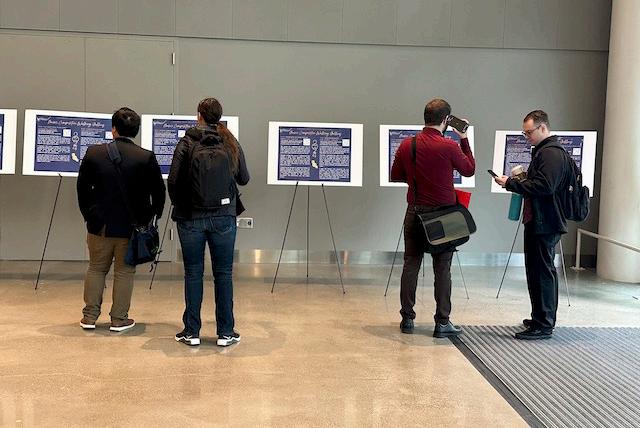
Spring Issue 2024 31
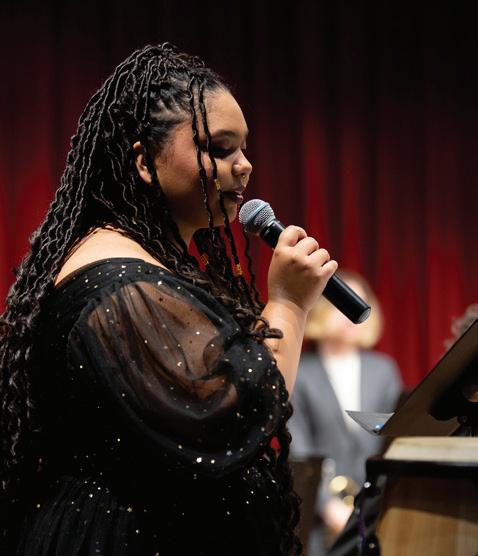
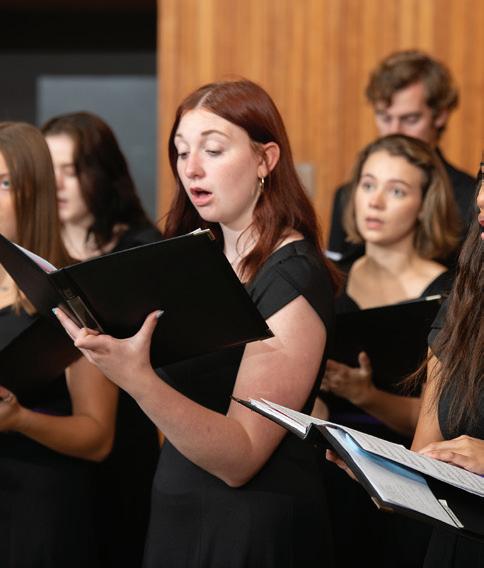

EXPLORE.
EMPOWER EMPOWER EXPAND.
SET YOUR CREATIVITY FREE.
In our close-knit community, the guidance of dedicated faculty raises the bar on your talent while giving you freedom to explore new skills.
For More Information
Visit up.edu/music or contact us at upmusic@up.edu | 503.943.7228



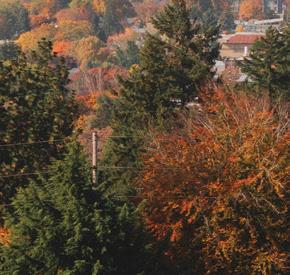




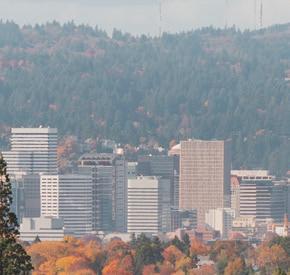
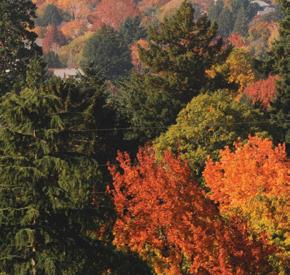
Teacher Grant Programs
by Dr. Diana Hollinger
CMEA Collegiate Representative
As you prepare to become a teacher, here are some teacher education scholarships to consider:
Golden State Teacher Grant (GSTG) Program
The Golden State Teacher Grant (GSTG) Program awards up to $20,000 to students currently enrolled in a professional preparation program approved by the Commission on Teacher Credentialing (CTC) and working towards earning their preliminary teaching or pupil personnel services credential. The 2024-25 GSTG application will be open through April 1, 2025.
https://gstg.csac.ca.gov/
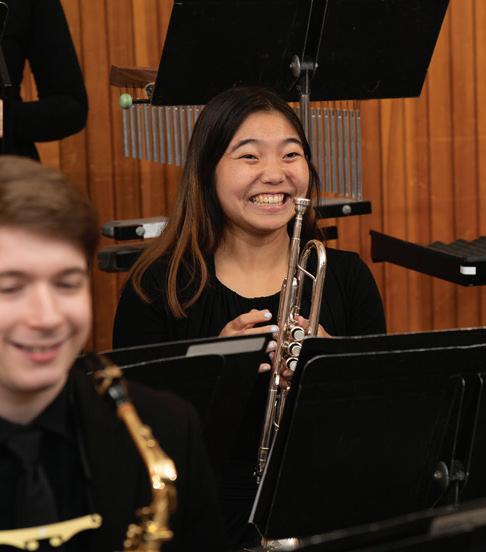





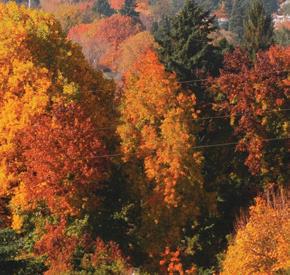

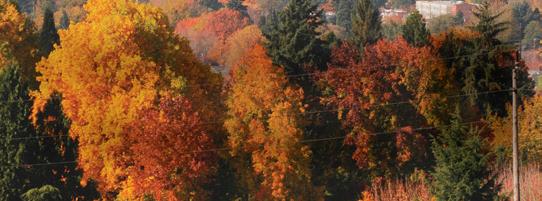
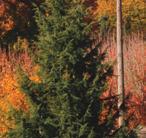
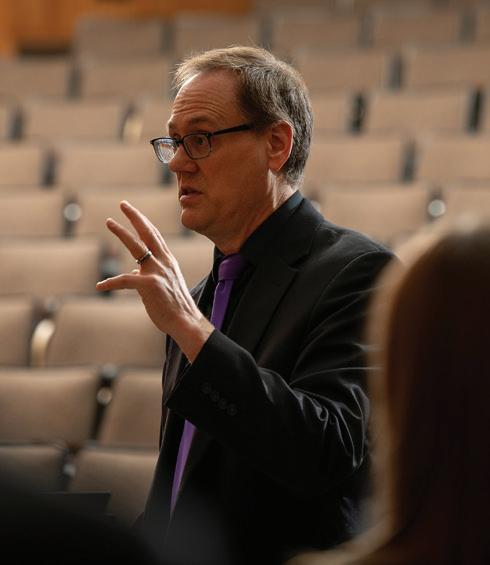
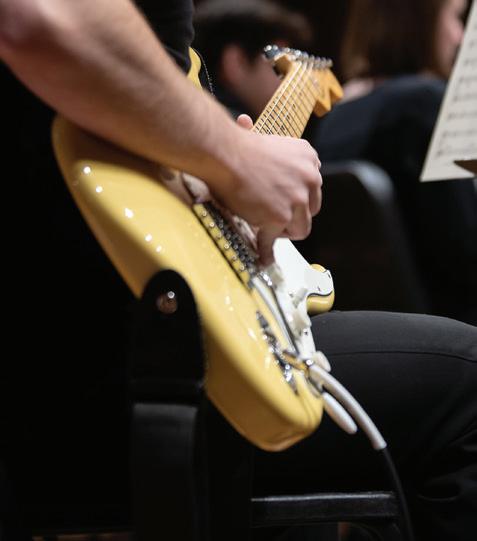

TEACH Grant
The TEACH Grant Program provides grants of up to $4,000 a year to students who are completing or plan to complete coursework needed to begin a career in teaching.
https://studentaid.gov/understand-aid/types/grants/teach
California Teachers Association (CTA) Scholarships & Grants
CTA has several scholarships and grants, including an aspiring educator scholarship, one for students seeking a credential, and several others.
https://www.cta.org/for-educators/scholarships-awards

Unleash Your Creativity with the WeVideo Soundtrack Project!
by Holly MacDonell, CMEA Music Education through Technology Representative
In the ever-evolving world of music technology, it can be a challenge to find the perfect lesson that captivates students’ interest while allowing them to showcase their skills. Recently, I stumbled upon a brilliant idea shared by Amy Lui at the most recent CASMEC that seemed initially daunting for my middle school music tech class. Little did I know that this project would turn out to be an unexpected gem!
The secret to my newfound success? WeVideo, an innovative online tool that not only offers a wide selection of pre-existing video clips, but also allows for seamless video editing and audio track integration. With a combination of free clips from the internet (WeVideo provides both free and paid-subscription content), I handpicked an array of captivating scenes—a mesmerizing view from an airplane window, a daring motorcyclist blazing through the desert, a serene and rain-soaked forest, a vibrant underwater coral reef, and a breathtaking fireworks display.
Guided by their own preferences, students eagerly selected a video clip and embarked on the creative adventure of crafting a unique soundtrack to accompany it using the versatile platform, BandLab. The user-friendly nature of WeVideo made it effortlessly simple for students to merge their audio and video tracks, resulting in seamless compositions. Furthermore, the availability of various transitions enhanced the overall visual aesthetic of their projects, ensuring a polished and professional feel.
Given our limited class time, with only a single session per week and a modest class size of 11 students, I utilized my free WeVideo account to construct these brief yet engaging soundtrack projects. However, the beauty of WeVideo lies in its intuitive interface, which enables students to create their own accounts, effortlessly connect to Google Drive, handpick their desired clips, and craft their very own stunning videos independently.
By defying initial doubts and embracing the power of WeVideo, my students and I discovered a remarkable avenue for creative expression and technological exploration. The possibilities are endless, and with WeVideo, the soundtrack project has become a breeze—a captivating journey into the realm of auditory and visual artistry.
So, what are you waiting for? Immerse yourself in the WeVideo experience and prepare to unleash your inner creative genius!
Spring Issue 2024 33
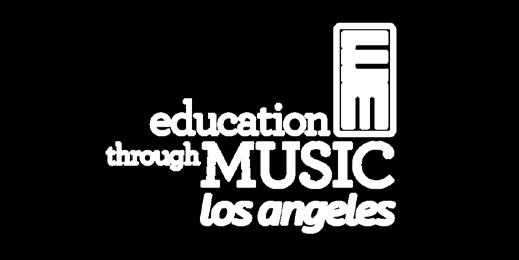


Are you looking to make a positive impact in your local schools and communities?
W e A r e S e e k i n g :
Creative artists/individuals with an interest in nurturing future generations through music
Individuals with a passion for working with local under-resourced school communities
Current and emerging practitioners interested in developing skills as a music teacher
Educators are empowered to create a vibrant music learning experience for students (PreK-8) across L.A. County. Music Teacher
Musicians and aspiring teachers have the opportunity to gain experience in the music classroom through this paid internship Music Teacher Intern
Work with Coaches & Clinicians, including:
Professors & Artists from Educational Institutions: Berklee, Boston University, CalArts, Colburn, Columbia University, CSULA, CSULB, CSUN, Juilliard, Princeton University, UCLA, USC, Xavier University, and more.
Award Winning Music Educators and Artists: American String Teachers Association Award, Country Music Award, Emmy Award, GRAMMY Award, Shining Star Music Educator Award, and more.
A
etmla.org/become-a-teacher

34 CMEA Magazine
E N
, T R A I N I N G
C U R R I C U L
T E A C H I N G
E S O U R
M
E R
V I B R A N T C O M M U N I T Y O F M U S I C E D U C A T O R S S E L & D I V E R S E S T U D E N T E N G A G E M E N T
M
T O R S H I P
&
U M
R
C E S &
A T
I A L S
P P L Y N O W

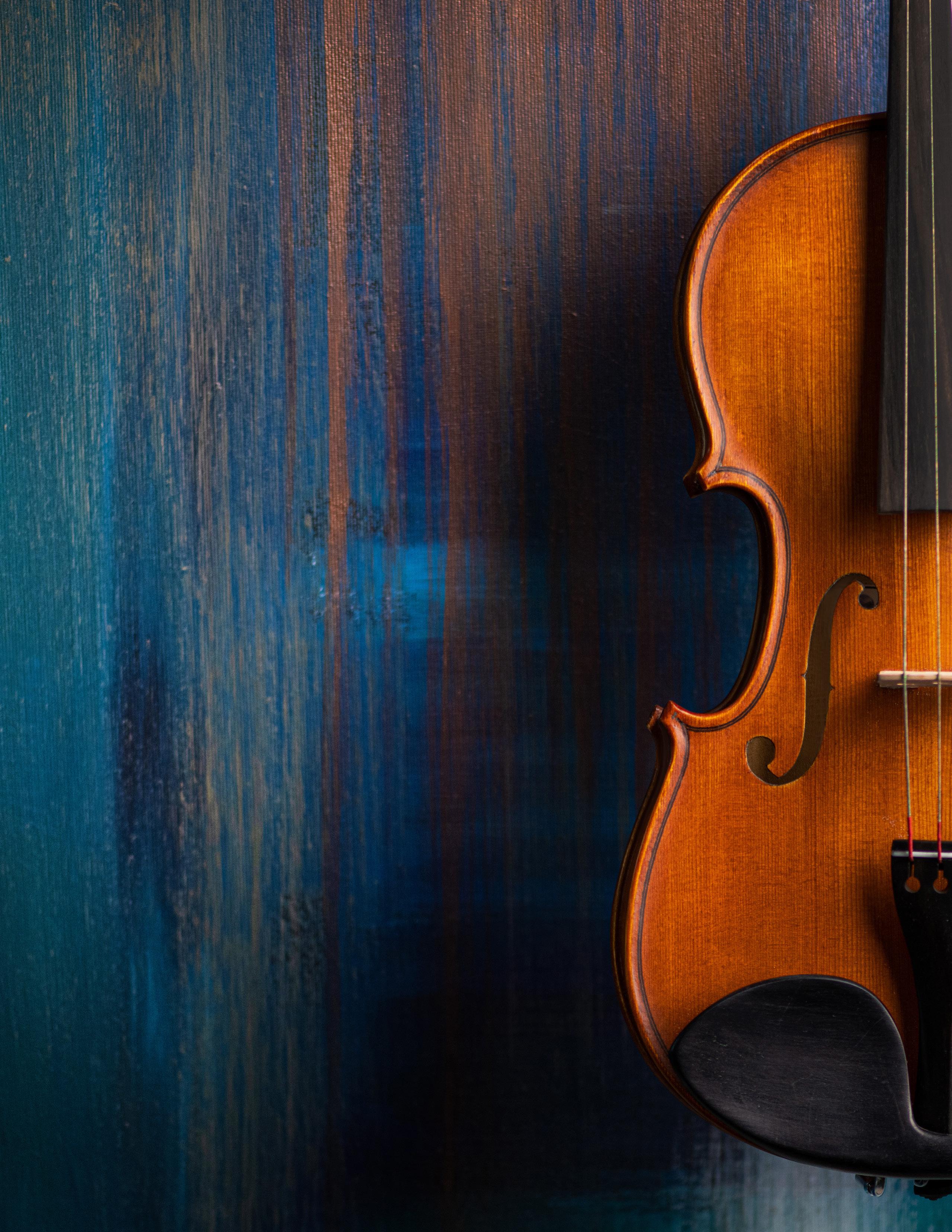
CODA NEWS - MARCH 2024
by Tiffany Ou-Ponticelli, CODA President
Dear CODA Members,
Thank you for joining us at CASMEC 2024 - we hope you enjoyed the orchestral professional development offerings and All-State Orchestras in our new Sacramento home. A few dates to keep in mind for the 2024-2025 school year are listed below.
CODA December Honor Orchestras
Santa Monica High School - Dec 6-7, 2024
CODA is thrilled to bring the statewide CODA December Honor Orchestras to Santa Monica High School on Dec 6-7, 2024. This event will feature a Symphony Orchestra and a String Orchestra. Students selected to join the ensemble will have the opportunity to perform alongside other top orchestral musicians from across the state.
Look out for audition scales and excerpts, which will be available on the CODA website in May. The deadline for CODA December Honor Orchestra auditions will be in early October.
CASMEC 2025
CASMEC will take place on January 15-19, 2025, in Sacramento! We are looking forward to another year in this beautiful conference space.
Performance Applications
Applications to perform at CASMEC 2025 will open soon! CODA would love to encourage orchestras from across the state to apply - high school, middle school, full orchestra, string orchestra, and beyond. Please check back to see the online application for details on how to apply, or reach out with any application questions! Performance Applications will be due on May 15, 2024.
Clinic Applications
Applications to present a clinic at CASMEC 2025 will also open soon. CODA aims to showcase a wide-ranging slate of presenters and topics, across the spectrum of orchestral education. We invite our members to consider submitting a session proposal. Clinic Applications will be due on July 15, 2024.
All-State Auditions
Important! Please note that the deadline to audition for All State ensembles at CASMEC 2025 will be OCTOBER 15, 2024, for High School, and NOVEMBER 2, 2024, for Junior High. Please do make a note of these new audition deadlines, so as to best support your students in their application process. Audition excerpts will be posted on the CODA website in May.
As always, please feel free to reach out with any questions. CODA aims to promote school orchestras in California by providing quality honor orchestra experiences for school orchestra students, and we look forward to finishing out the 2023-24 school year strong.
Stay connected on Facebook and Instagram @calorchestradirectors!
Spring Issue 2024 35

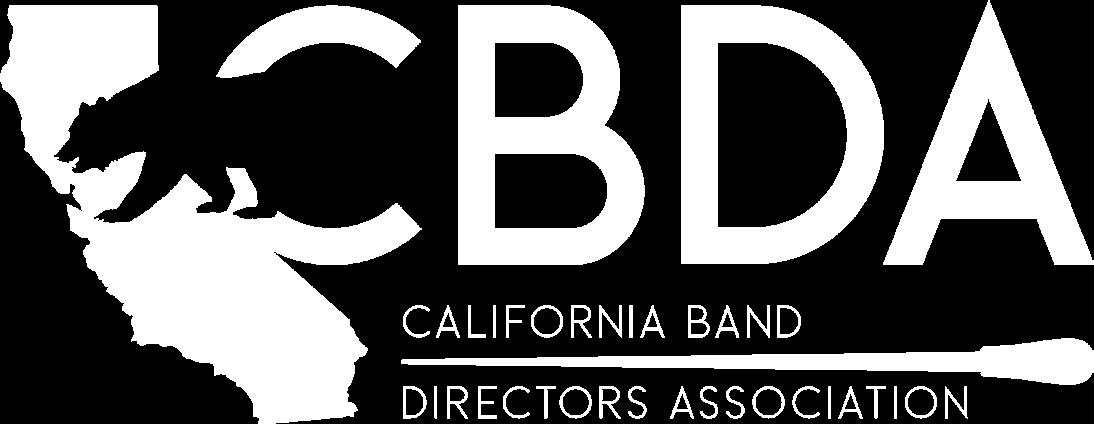

CBDA Update
by David Green, CBDA Director of Communications
As the year unfolds, CBDA (California Band Directors Association) takes pride in reflecting upon the recent achievements and endeavors that have defined our commitment to music education and excellence. Here’s a glimpse into the notable highlights from the past season:
Inaugural Participation in CASMEC Sacramento
CBDA proudly participated in the first-ever CASMEC Conference held in Sacramento, CA, this past February. Collaborating with esteemed partner organizations such as CAJ, CMEA, CCDA, and CODA, CBDA contributed to the success of this milestone event. We eagerly anticipate the continuation of this conference in the coming years, fostering a thriving environment for music educators and enthusiasts alike.
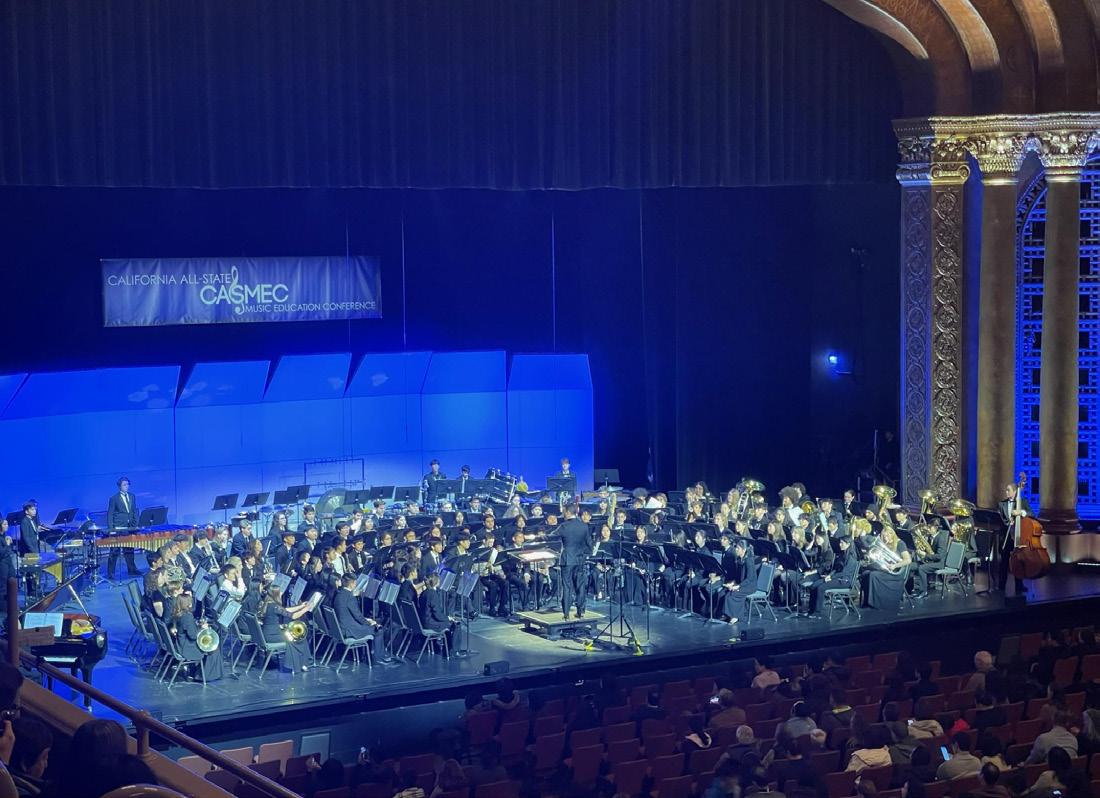
Phenomenal CBDA All-State Honor Ensembles:
The CBDA All-State Honor Ensembles showcased exceptional talent and artistry under the guidance of distinguished guest conductors. We extend our gratitude to Damon Talley, Julie
Giroux, Shelley Jagow, M.J. Wamhoff, and Adam Wilke for their outstanding contributions to our ensembles, enriching the musical experience for all involved.
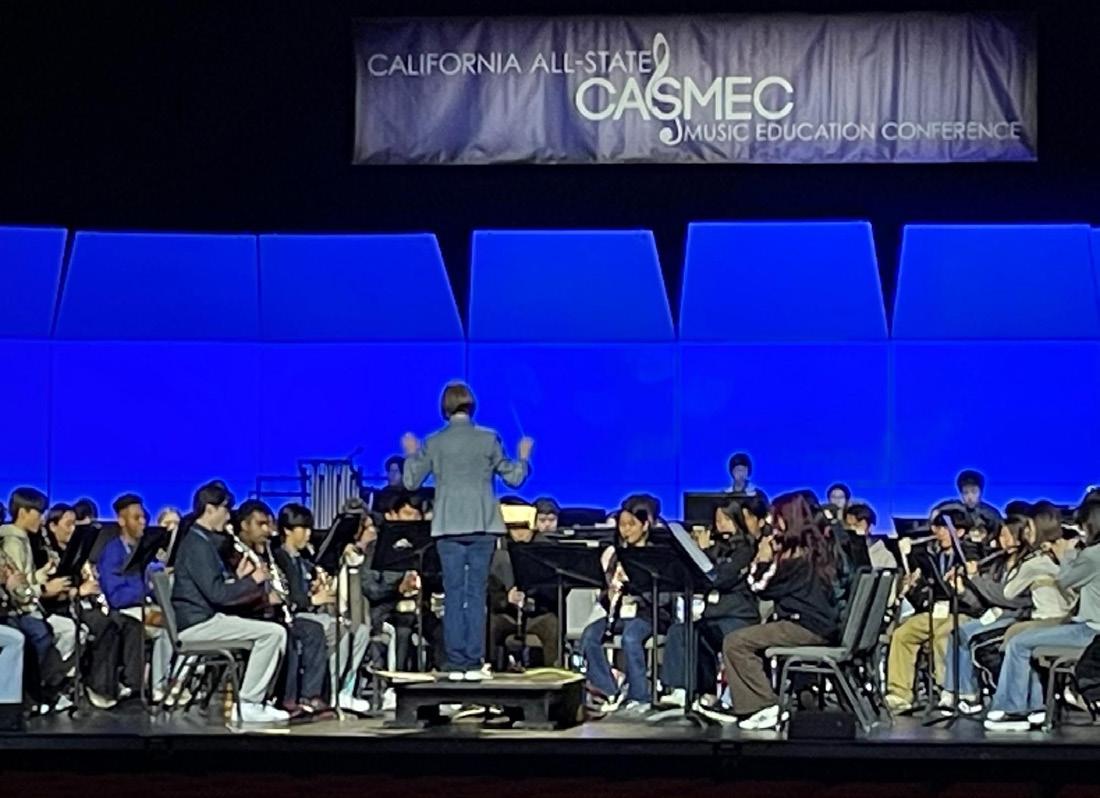
Music Sale for Mike Gangemi Scholarship Foundation
CBDA embarked on a meaningful initiative to support the Mike Gangemi Scholarship Foundation by selling a collection of music accumulated over the years for our all-state ensembles. Through the generosity of conference attendees, we have raised several thousand dollars to assist future all-state students with financial needs, embodying our commitment to nurturing young musicians.
Navigating Challenges at CASMEC
Despite facing unexpected challenges, including a massive storm causing flooding and flight cancellations in San Jose, CBDA rose to the occasion. We extend heartfelt appreciation to CBDA Board Members and the dedicated staff of the Sheraton Grand for their swift action in providing additional accommodations, ensuring the well-being of our all-state students amidst adversity.
36 CMEA Magazine
Premiere Performances of Social Impact Consortium Pieces
The debut performances of “An Evening Raga for Concert Band” by Aakash Mittal and “V.O.C. Helsman of the Seat” by Sruthi Rajasekar marked a significant milestone for CBDA’s Social Impact Consortium. This groundbreaking initiative commissioned not one but two remarkable compositions, fostering cultural exchange and artistic innovation. We express our gratitude to the guest composers for their exceptional contributions and eagerly anticipate forging new partnerships as part of this esteemed project.
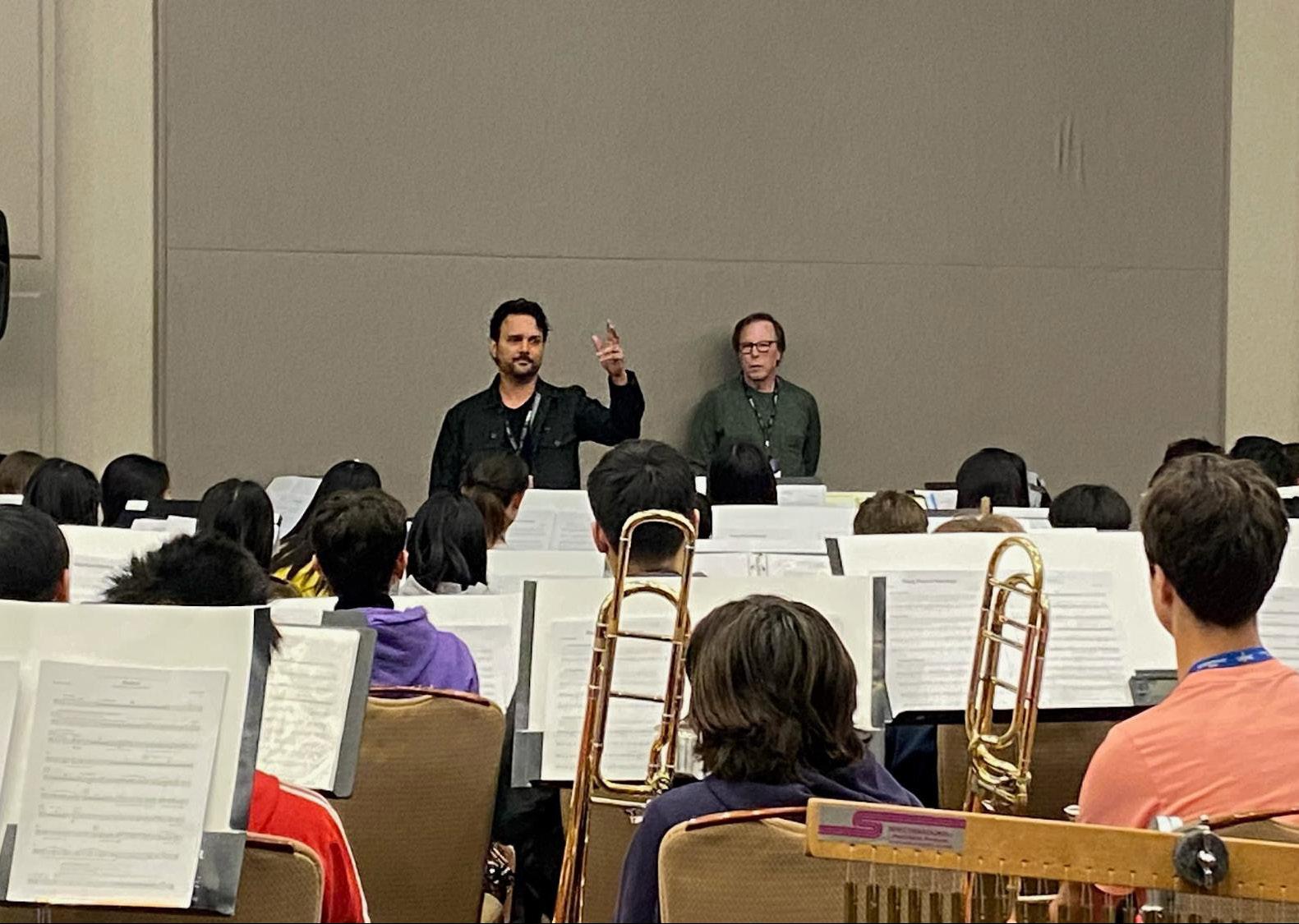
CAJ Update
by Barb Catlin, CAJ President
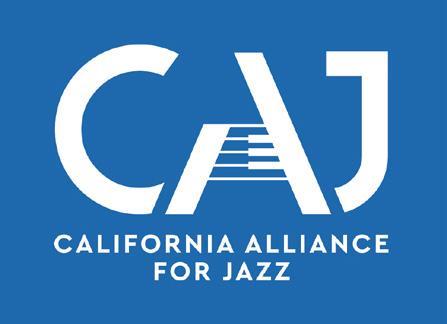
The Board of the California Alliance for Jazz is charged up from our successful conference in our new home of Sacramento. It was fantastic to make friends and have conversations with colleagues in other disciplines. We came away dedicated to facilitating jazz and improvisation for all. Instead of preaching to the choir, our goal is to reach directors who have little to no experience in jazz but would like to (or find themselves needing to!) learn more.
We have a few exciting opportunities to further these goals:
1. Our CAJ Summer Jazz Institute for Educators will be July 26-28, 2024, in Pasadena on the Caltech campus. This workshop is geared toward those who have little to no experience in jazz! It will be hands-on (we will play/sing) and fun. Topics include repertoire, beginner improvisation ideas, rhythm section concepts, jazz articulation, rehearsal
Upcoming CBDA Spring Bulletin
As we look ahead, CBDA is excited to unveil its annual spring bulletin, featuring updates on upcoming events, including future all-state deadlines, insightful articles for music educators, and organizational developments. Stay tuned for the latest updates and resources from CBDA, as we continue to champion excellence in music education across California.
As we embark on the journey ahead, CBDA remains steadfast in its mission to inspire, empower, and enrich the lives of students and educators through the transformative power of music. Join us as we continue to elevate the standards of musical excellence and foster a vibrant community of passionate musicians across the Golden State.

techniques, and more. Evenings will be spent listening to live jazz and hanging with the CAJ board. The price is $195.
2. The Tune-Up Festival/Clinics for your school ensembles. These clinics are “come-as-you-are” and can be tailored to fit your needs. We will coordinate with a jazz educator to come to your school and address repertoire-specific concepts before you attend a big festival. Together, we’ll create a low-pressure environment for you and your students to help prepare you for an upcoming festival or concert. You can also sponsor a festival format where you bring in other schools, have a smaller setting with your group and other nearby feeder or neighbor schools, or have a one-on-one clinic.
3. Collegiate/New Teacher Mentors. CAJ would like to connect our Collegiates and New Teachers with mentors. Our CAJ Hall of Fame recipients and recently retired jazz educators have expressed interest in helping. Here is more information on our CAJ Collegiate Chapter. Contact us if you’d like a mentor-teacher referral - what a great way to share information.
4. One takeaway from our CAJ General Session at CASMEC was that our website needs a resource page. We are working to get that up and running, so please stay tuned. Visit our website to see all that we have available.
The Spring semester is our jazz semester! Indeed, April is officially jazz history appreciation month, so we hope you all can include jazz in your curriculum. Let us know how we can help!
Spring Issue 2024 37
CALIFORNIA MUSIC EDUCATORS ASSOCIATION
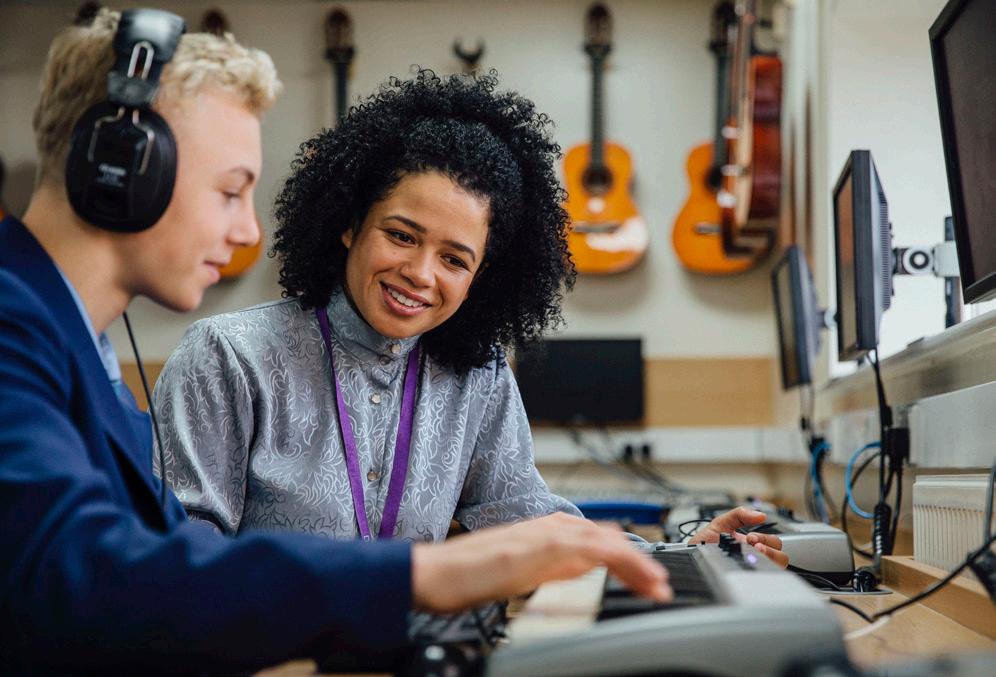
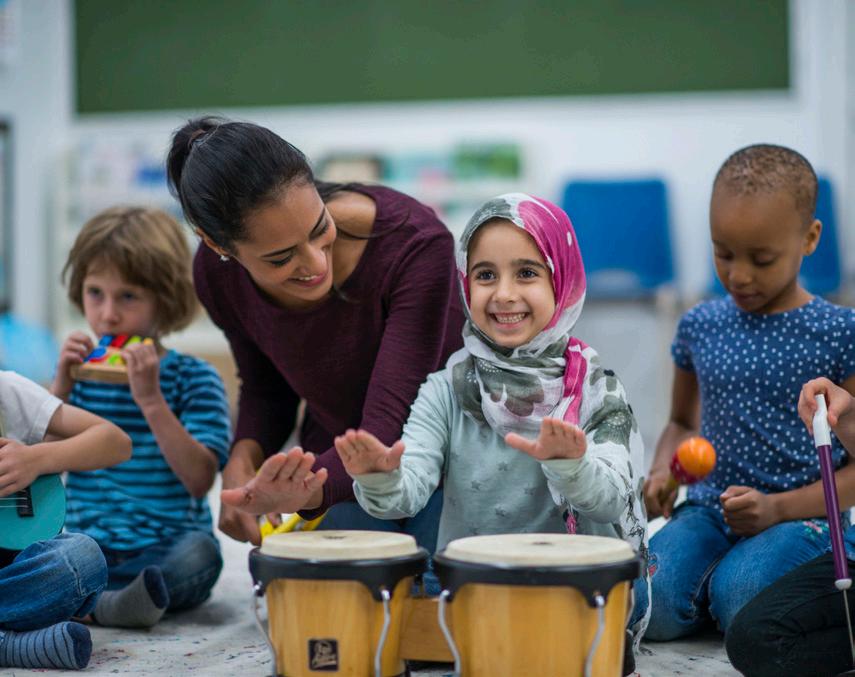


Ensuring all California students have equal access to a high-quality music education as part of a well-rounded education.

https://calmusiced.com/
38 CMEA Magazine












































































 by Zack Pitt-Smith, CMEA Urban Schools Representative
by Zack Pitt-Smith, CMEA Urban Schools Representative


















































































 by Fernando Penaloza, CMEA Member-At-Large
by Fernando Penaloza, CMEA Member-At-Large

































































